|
Tea Time the perfect moment one pot of tea, two teacups, and a rose garden First Song a startling sound robins sing to fading stars just before dawn breaks Gibbous a separate thing far above this wilting world the half-melted moon Carolanna Lisonbee is a writer, English teacher, and globetrotting adventuress from Utah. Her first collection of poetry is WISP OF FOG MOMENT. Her poems have been included in the collection TEA-KU: POEMS ABOUT TEA, by Local Gems Press, and her translations of Chinese poetry appear in issue 10.1 of the journal Reliquiae, published by Corbel Stone Press. She posts on Instagram as carolanna_joy_poetry, and writes #ScienceNewsHaikus on Twitter as @carolannajl. Out of Sorts June squall in Japan – confusing the car’s wipers for the turn signal Resolved a gray sapling blinks on the summer-withered shore – heron at sunset The Bee a tired honeybee resting in a sunhat’s crown much too big to wear David Joiner is the author of the novels Kanazawa (Stone Bridge Press, 2022), Lotusland (Guernica Editions, 2015), and The Heron Catchers (Stone Bridge Press, forthcoming). He has also published short fiction and nonfiction in a number of journals and magazines. The wind chimes jabbering dances across the lake,
the water a conduit, copper wire electrified by glass the wind is toying with, an alert to the air’s mischief, black sky bullies its way through the back door. Soon the pelting starts. Wrathful raindrops dump from belching clouds. Thunder announces lightning contestants that jab the dark, pummel the afternoon’s serenity into submission. The storm nature’s villain. The character that forces everyone to shelter inside. Hide from the anger, uncontrollable crying, bellowing intimidation. But a voice, a streak of blue, breaks the sky. Hints the yelling, the pounding tears, electrocuted remarks, will end. Submit to a clear unclouded truth. Doug Van Hooser's poetry has appeared in Roanoke Review, The Courtship of Winds, After Hours, Sheila-Na-Gig online, and Poetry Quarterly among other publications. His fiction can be found in Red Earth Review, Flash Fiction Magazine, and Bending Genres Journal. Doug’s plays have received readings at Chicago Dramatist Theatre and Three Cat Productions. More at dougvanhooser.com. The Poet’s Mirror I Spirits assail under cover of dark to suborn the poet’s ink how close are prayer and poetizing wrestling the ineffable the half-finished poem is a blind man feeling his way on a dark night or a lover groping with passionate hands toward his consort’s bed how the autonomous words blow where they list the bell of the Sorbonne, the guttered candle the frozen inkpot warn against the Promethean stroke which re-orders the world The Poet’s Mirror II The poet indites his hope of immortality in evanescent tracery of loneliness, love and loss; concupiscence and copulation synecdoche for life itself. Lloyd Jacobs is a former surgeon and university president, now writing daily. His poetry has been published in The Wallace Stevens Journal and The Main Street Rag as well as by other small magazines. That’s where my Dad was born: Whiskey Hill. It did perch on a hill, and local history has it that quite a bit of whiskey flowed down the hill into the valley below.
Then Prohibition came along, and the good town fathers (there were no women in government back then) changed the name to “Freedom”, as if somehow partaking of whiskey for so many years actually got you to Freedom. Maybe it did. Maybe it didn’t. The road to Whiskey Hill is still there. It is a narrow path, cutting off of Freedom Boulevard, hardly wide enough for one car. I can only imagine old Model T’s puffing their way up the hill to grab a keg of that stuff, whatever it was. If you didn’t know the road was there, odds are you would never see it behind the massive oak trees and overgrown poison oak. My father’s cousin was the last of the family to still live on Whiskey Hill. He lived right across the Presbyterian Church that spewed its bellowing out over the whole area on Sunday mornings. Everyone congregated at that Church, there wasn’t much else to do on Sunday mornings on Whiskey Hill. By the time my father’s family left, a new access road to Freedom had been built, and a freeway connected all of central California, with the town center relocated to the respectable valley below. I became the mostly respectable librarian in Freedom. One day at lunch I sat at a counter next to a young man who was wandering the West. His eyes truly glowed as he told me how he took the freeway exit labeled “Airport Blvd/ Freedom.” He didn’t find an airport – that was on a different road entirely – and although he found Freedom, Whiskey Hill would have eluded him but for the happenstance meeting of a mostly respectable friend. MaryAnn Shank spent much of her life in the shadow of Whiskey Hill. She wrote of her unexpected adventures in the Somali Peace Corps in the historical novel "Mystical Land of Myrrh". Her poetry has appeared in a number of publications, and she is presently engaged in bringing to life the story of another historical figure. Find her at http://mysticallandofmyrrh.com. “There are people who are unable to think," Abbot Corby said, "and there are those who can't feel. And there are people like you who can't do either. No matter how much you teach them, it won't do them any good.”
These were the exact words Abbot Corby said to his pupil, the unintelligent Charles, who ten years later would become King of the Franks and of the Lombards and Emperor of the West. Charles remembered well the lesson the abbot had given him, and one day, after drinking from a bottle of intoxicating power, he ordered his teacher brought to him and, when he was brought in, bound hand and foot and gagged, Charles asked, "Do you still consider me incapable of thinking and feeling? And when the abbot was silent because he could not speak, Charles ordered that the gag be taken out of the teacher's mouth. “Answer!” “I still think I was right," answered the teacher. The King of the Franks and Lombards and the Emperor of the West gave orders to tie the abbot to a pillar of shame. Townspeople were commanded to throw rotten eggs and other foodstuffs at the old man. Two days later a new order came out: Untie him from the pillar and bring him to the throne room. “Do you continue to think as you did before?” the old teacher was asked by the Emperor of the West, the Lord of the Francs and the Lombards. The teacher said nothing, just nodded faintly. The Emperor of the West, the Lord of the Francs and of the Lombards ordered to hang the abbot. When he was already standing at the gallows with a noose around his neck, the emperor went up the platform and again asked if the teacher had changed his mind about his former pupil. The old man answered with his eyes: No. The emperor nodded to the executioner and the executioner drew up the rope. The old teacher's body hung in the air. And it seemed that even his dead legs, swaying from side to side, were saying: "I was right." Nina Kossman is a poet, memoirist, playwright, editor, and artist. She has authored, edited, translated, or both edited and translated more than nine books in English and Russian. She was born in Moscow and currently lives in New York. https://en.wikipedia.org/wiki/Nina_Kossman It was a cold night in late March and the moon rose somewhere over Kansas. The wind screamed, the way it does over metal, sharp and unrelenting, forcing me to shelter behind my pack. I stuffed a t-shirt into my wool hat to cover my face and peered though it like a mask. I was bound for home and classes on a freight train out of Amarillo—almost broke, exhausted, happy.
The train stopped. I moved to the front of the car—an empty automobile carrier with sides like a guard rail rising three levels—and stepped down into the night. Fields still slumbered in dark winter, flat to the horizon where low stars and distant farm lights mixed. With luck, I’d ride as far as Chicago. After a two-year absence, I was eager to return to the university and finish my degree. But this night, in this cold place, I was having second thoughts. What did sitting behind a desk have to offer? I had floundered in one program or another, searching for answers, yet hardly knowing the questions to ask. School, I was convinced, was not going to bring out my best self, so I left to pursue what I thought a more worthy life. What’s the use of all that noise and money? asked the Tang Dynasty poet Han-shan, named for the place he lived, Cold Mountain. His words became my calling. Freed from the weight of expectations and a career track, I wandered, trespassed, dared—and moved in awe of a new world. On the road I felt at once both centered, and unhinged; there were no wrong turns. Not knowing in what railyard (or backyard), or under what tree or star I’d spend the night, I lived in the moment— a delightful anxiety—out of fear from looking past it. Happy, yet scared, seemed to be my lot in life. Of course, dropping out and leaving were easy; coming back whole, and having something to say, less so. Now the train’s brakes hissed, it shook and lurched, and I scampered back on. The swaying, windswept car made more conventional rides— bounding along in the cab of an 18-wheeler, for example, or sharing the bed of a flatbed truck in Mexico with a drove of pigs—appear first class. Wherever I kneeled—even lying down—the wind penetrated to my bones. The train moved with all the speed of a weather front. Until it didn’t. At a long and captive layover outside a small town south of Wichita—I followed the tracks on a road map—I slept much of the following day. Woke up, plucked a freeze-dried beef with potatoes from my pack, and boiled water on my small gas stove. This train apparently was going nowhere. Dozing, I missed the first eastbound that rolled into the deserted yard and waited until dark for the next. I was not alone on this one. Two Mexican teenagers, laughing and coatless, dashing and daring, jumped from a boxcar as the train slowed, beckoning me to follow them. I didn’t comprehend. “How is this?” I yelled. “Where to? Adónde?” “La máquina! La máquina!” The younger one shouted, pointing to a second locomotive at the front of the train, coupled back-to-back to the main engine. I followed their lead. We climbed the steps and made ourselves at home on the narrow floor. “Yo soy Marcos,” I told them. “Arnulfo,” said the younger boy. The older one seemed distant, yet at the same time watched me with a closeness that was unnerving. He wouldn’t tell me his name. Perhaps if I had had a mirror, I wouldn’t have trusted the person in it either. The two were cleaner-looking than me. Their hair was cut, their faces smooth—if indeed they were old enough to use a razor. I had a good beard going, and shoulder length hair. They were better dressed as well, however insufficiently, in shirts and trousers. I had on five layers, flannel and wool, a down jacket and rainsuit. The Michelin Man from hell. “Hermanos?” I asked. “Primos,” Arnulfo said. Cousins. Spanish was at least one course I had finished at school. Arnulfo said they hoped to find work and send money home. They had nothing to eat. I gave them a freeze-dried meal of something or other (they all taste the same after a while) which they tore into and devoured dry, like cereal. He said they’d hopped a train some days ago in El Paso and survived the frigid nights hunkering down in deserted engine rooms, drinking the potable water there. In the warmth of this new shelter, my sleeping bag now draped over the three of us, I would survive too. The train’s rhythms were riveting, even hypnotic from our uneasy berth, which at best was not unlike the rocking of a cradle. Or, at worst, the steady back-and-forth churning of a washing machine. And we were the oversized, unbalanced load that hadn’t set off any alarms. Yet. The train whistle (or horn) was loud, too, its frequency indicating the size of the town we rumbled through, and my heart skipped a beat—as it still does, to this day—listening to the unquiet wonder of it piercing the darkness. As we crossed the heartland, I thought of perhaps the first whistle I’d ever heard, alongside my brother a lifetime ago in an Iowa motel room near tracks, and of a train I’d been on too, a dateless journey into the night with my father somewhere near Niagara Falls. Trips I cannot put into context other than to say there was a train, night, a whistle, family. Plaintive sound—or bold warning—the sound of a train is more or less a wrinkle in time that announces the past is ever present, and the present—in the blink of an eye—is already past. In the middle of the night, as the train eased into a small yard in central Kansas, a man entered our locomotive, stumbled upon us and abruptly left. Spooked, the boys and I fled that engine at the next stop, literally hit the ground running, found an open door down the line and thrust ourselves into a dank and empty boxcar. At once, and in silence, we worked the heavy ironlike doors almost closed, leaving them open just enough to breathe in the bitter fresh air. The collective fear of being locked in and entombed in this bleak car needed no translation. Moving through the din and darkness of morning, staring through the gap in the doors at the tree line across the tracks, I had the improbable and magical feeling that wherever we were going, wherever we ended up, I’d been to. Trains can turn your world upside down like that. For much of my life I’d gazed longingly at tracks, steel rails that seemed to beckon and bend and dissolve in the heat, disappearing in a destiny of their own beyond anything I could imagine, and the sound of a coming train—the whistle in the air, the humming of the ground—was an invitation to jump aboard; a song I had to know. Looking back at that time and the wisdom of taking such risks, today I wonder if I had lost my mind—or was simply more willing to find it. Toward dawn we approached Kansas City, its bright lights spilling through the peephole of our boxcar doors, reminding me that I was one step—or yard—closer to home. The old desire to fit in, to be stamped and graded pulled at me as relentlessly as the wind had pushed. I wanted to be, well, wanted. Accepted. Loved. I was torn between Cold Mountain, Han-shan’s world, and the one chasing approval. I came to the understanding that the road away—painfully, joyfully—frames what home is and is not, as well as the people you run from, or to. The road back is merely one seeking acceptance, and I wanted to come in from the cold. As I would. Wearing every last shred of clothing I had, the sleeping bag again draped over our bodies, I thought of grabbing it and my pack and jumping from the train. Railroad security, however, would spare me that. Drifting in and out of sleep, I hadn’t realized that we had reached the yard. Suddenly a flashlight was in our faces. A second man barked his what-the-fuck at us. Forced off the train, they frisked, handcuffed and sat us down, like stones on a stone wall, guarded by one agent as two others searched one-by-one the remaining cars with their imposing Maglites. The great yard shook with life in the early morning. Tens and tens of tracks merged and straightened and curled like a sea of black snakes as cars of all shapes, tall as bulldozers and flat as dominos, were joined or uncoupled amidst the clamor of bells. The smell of diesel was thick like mud. Switchmen sprung up like jacks-in-the-box, jumping and hollering to rearrange whole trains with a whisk of their wrists and lanterns, their sharp cries splitting the frosted blue-gray air. I thought of Studs Terkel. Sinclair Lewis. Gary Snyder. Marty Robbins. In their tight blazers and pencil thin neckties, the two agents who busted us seemed out of place in this expansive yard teeming with workmen in coveralls. But they too had roles, and drove us to a still dark, modern brick building less than a mile away. One agent led the Mexican teens to another room and then went to search for the janitor who spoke Spanish, while the other interrogated me at his desk. He asked if I was carrying any drugs, and whether I had a Buck knife, which he clearly coveted. I had neither, and little else other than a few granola bars in my pack and some change in my pockets. He returned to his paperwork as I again thought of home—Michigan was another 600 miles east—and my time away from it. Whatever it is that young men search for, I was in the hunt, trying to find a life without adornment, blather and harm—and I was inexplicably drawn to trains. Perhaps the attraction was simple; the tracks led away from home, school and a predicable life. But tracks, of course, run in both directions; and home, as they say, is where your story begins. At times, telling mine seems within reach. The agent, finished with his report, took a phone call, then put the receiver down. “The highway is a few miles from here,” he said, nodding toward my pack. “You can likely find a ride there.” And I thought, it’s a weary thing, the simple act of holding your thumb out and relying on the charity of others. I wasn’t looking forward to it. I thought too of the teens, soon to be homeward bound themselves with the clothes on their backs and probably not much more. Just then I turned to the waiting room to see them enter and sit. The older, quiet one raised his cuffed hands and smiled at me through the glass. “Pablo,” he said, loud enough for me to hear. “Pablo from Magdalena de Kino. Vaya con dios, Marcos.” “They’ll be detained for Immigration,” the agent said, following my gaze. “You’re free to go. But I’m warning you: We have what we need to know about you. Do not ride the Santa Fe through Kansas again.” And I wouldn’t. Not in Kansas. B.L. Makiefsky was the winner of the 2012 Michigan Writers Cooperative Press chapbook contest, for the short story collection Fathers and Sons. Among publications his work has been featured in (or is forthcoming) are the Detroit Free Press, Dunes Review, Thoughtful Dog, Pithead Chapel, Brilliant Flash Fiction, Fiction Southeast, Flash Fiction Magazine, Hypertext Magazine, Jewish Literary Journal, the Great Lakes Review, On The Run and jewishfiction.net. In addition, Makiefsky has written three stage plays, one of which (a one-act) was produced. Spring has returned to Long Island. I wake early and lace up the blue and silver New Balance walking shoes I bought a few weeks ago in anticipation of this year’s equinox. I’m hopeful that the exercise will strengthen my bones and jumpstart my goal to lose ten pounds. Waiting for the school buses and morning commuters to clear the neighborhood, I strap on the new Fitbit my daughter gave me for my 68th birthday.
The warmth of the morning is soothing. I wear only a heavy sweater over fleece-lined leggings and a worn pullover, removing my gloves three blocks into the walk. I round the corner on Anne Street and spot a man with a burly gray bread. His white robes are bellowing in the wind under a down jacket, and sandals expose his toes as he walks sluggishly down the other side of the street. We glimpse at each other with a brief curiosity and then walk on. I remember a movie I recently saw with Helen Mirren who played a woman wanting to learn to drive after her husband dies. She found a middle-aged man from India to teach her and after a few months, they had a loving but short-lived affair. I wonder where this man across the street hails from. Is he from India, Pakistan, or Tibet? Or is he wearing pajamas he bought at Kohl’s? That’s the trouble with the world, in a nutshell, assumptions. It’s like when I meet Asian people, I think they’re bi-lingual. Maybe I’ll see the man in the sandals again another day and I will speak to him and figure it all out. Returning to my house, and still looking for my husband’s Honda Civic missing from the driveway, makes a dent in my heart and I sigh as deeply as a lion’s roar. His death was too sudden. How long do I grieve? Is there a timeline for loss? After enduring a dark winter, I look forward to sunshine in the days ahead. Sipping a cup of mango tea, I think about what to plant in my garden. Then I consider baking a loaf of sourdough bread and tomorrow I can eat it for lunch outside on the deck, after my walk. The next day I lace up my walking shoes and head out. Walking alone each day becomes monotonous unless I have a diversion. I could listen to Spotify on my iPhone, but then I might miss a crack in the sidewalk and fall on the cement, only to break my hip or cause a head injury. Attempting to be mindful of the birds singing to each other, the luminous clouds in the sky, and the lovely homes with well-groomed lawns, my mind defies me. Stories and thoughts jump in my head and I struggle with this mindfulness matter. I survey the neighborhood as if collecting data for the census when actually all I’m hoping for is to spot the man in sandals. I turn the corner and see him across the street. We make eye contact and I smile, then we both walk in opposite directions. Today I am bold. It’s been nine months since my husband David died. The same amount of time as gestation, the phase needed to grow a life. My morning walks have moved from days into weeks and my fascination with the man in the robe grows. I close the door to my home, take a deep breath and walk on the same side of the street as he. I turn the corner and we meet head-on. When we are face to face, I stop short and say, “Hello.” His smile is broad when he answers, “Hello to you.” I hear the sharp /t/ and recognize a British accent. I bet he’s from India, but dare I ask. I continue the beginnings of a conversation. “It’s a beautiful morning for a walk.” “Indeed, it is.” The man in sandals introduces himself. “My name is Aakash Devi.” “My name is Barbara Fried.” After some hesitation, I ask, “Which way are you walking?” He tilts his head forward; his eyes are dusty gray. “That way, would you like to join me?” “Yes, thank you.” We continue walking half a mile exchanging niceties and comments about the beautiful weather. My curiosity takes over. “Are you visiting from India?” “Not precisely. I am from India, but I’m not visiting. I now live with my son, here in Huntington.” I’d like to know more about Aakash. I stop myself not wanting to overstep any boundaries, and so we walk a mile discussing neutral topics- the weather, local places, and music until we go our own ways. We continue to meet near Anne Street as if by coincidence but really on purpose. The spring is coming to an end and summer’s heat begins to encroach on our walks. We accept that our meetings are intentional and decide to meet earlier since the days are growing longer and so are our walks and conversations. I think it’s time for more personal questions. “Is your wife with you at your son’s house?” “No, she passed last year.” “Oh, I’m so sorry.” “What about your husband,” he asks. “Is he at work while you walk?” “No. he had a heart attack last fall and died suddenly.” I want to run home. I haven’t said that out loud in a while, especially to a stranger and to a man, no less. I feel naked as if I’m standing without clothes and at the same time my skin is longing to be warmed by touch. He slows his pace. “I’m sorry for you, too.” “Thank you. I think I’ll turn down this block, my house is near the next corner.” We part. I quickly walk home, pour myself a shot of Jameson on the rocks, sit on the couch and weep. My morning walks stop for the next few days, instead, I ride the stationary bike in my den. I’m too raw to walk in the wind and there is no amount of sunscreen that can protect me from nature’s rays. I wonder if Aakash will miss me on his walk or is he too feeling vulnerable and staying inside reading a book. It’s been a week now and my courage reservices on this lovely summer’s day. With my shoes laced up, I begin walking and spot Aakash at the end of the next block. I pick up my pace to meet him. His gentle gaze is comforting, and he asks, “Are you alright? I’ve missed seeing you.” “I’m fine. I was just tired.” We begin together at a slow pace. “Would you like to sit on the bench in the park?” “Yes, that’s a good idea.” I sit back on the bench and let the shade of the oak trees cool me from the early August humidity. The park is full of small children and their mommies and nannies. Looking out at the children on the swings, I’m optimistic and filled with hope that I too can be free to glide in the air, secure that gravity will hold me up. I ask Aakash, “Does your son have children?” “Yes, three. One is already in college.” “You must be very proud.” I’m an inquisitive person, eager to find out about things that may be none of my business. But then how do I build relationships if not by asking questions. “How long were you married?” “Forty-two years. I hardly knew my wife before we married. I only met her twice, after seeing her picture. Arranged marriages are common in India.” “I’ve read that in many arranged marriages, couples usually maintain a long and loyal relationship, learning to love each other by caring for a stranger. But I suppose we’re all strangers who become intimate in a marriage either by our choice or someone else’s plan.” “Are you a philosopher?” We laugh, and I’m happy that the man in sandals is becoming my friend. “What was your wife’s name?” “Pallavi. She was from Amritsar, in the state of Punjab. My family is from Punjab. We lived in Chandigarh where the University is. My parents were professors.” Aakash looks up at the cloudless sky and then continues. “In India, most women are groomed to be a wife and taught to run the household, care for the children, and keep things orderly, those responsibilities were deep-rooted in Pallavi. Then when our children grew, she wanted to study at the university and become a teacher.” “Did your wife become a teacher?” “No, she got sick. It was a genetic blood disease.” “That must have been hard for both of you.” I sit quietly for a few minutes. When I sense the heaviness lift, I continue, “I was like Pallavi, but the difference is I finished college before I married. I also raised my children and took care of the household. Then I worked as a teacher in an elementary school near my home.” After a pause. “What kind of work do you do?” “I’m a physician, what you call internal medicine, a family doctor. I worked in our city and retired before I moved here.” He turns to look at me. Looking back at him, intrigued by his delicate, defined features. Our boundaries are becoming blurred. I feel a twinge-like hunger that morphs into a cascade of nerves, I stand up. “Let’s walk.” The summer progresses and so do our walks and conversations. This morning when I leave my house, the sky looks threatening, and rain is predicted. I venture out anyway eager to see Aakash. We meet near the park. As we walk the rain begins, only a few blocks from my home. “Why don’t we walk this way,” I point in the southern direction. “We can stop by my house and I can make tea if you would like that?” “Yes, I would. You’re very kind.” We enter the warmth of my home and I guide Aakash into the living room to sit on the couch. “Please make yourself comfortable, I’ll be back in a few minutes.” I return with a pot of honeyed Irish breakfast tea and a plate of cookies. I pour tea into matching mugs, give him the cup and sit on the loveseat across from Aakash. “Thank you. The tea is lovely and those cookies look delicious.” “I love to bake, It’s therapy for me.” I hand him a plate with three cookies. He bites into one but cannot resist putting the entire cookie into his mouth. “I’ve never tasted this confection before. It’s very good.” “They’re thumbprint cookies. The little dimple in the center is for all kinds of jam, but I use strawberry, my mother’s favorite.” “Are your parents still alive?” “No, my parents both passed away, but I have some of my mother’s recipes and this is one we used to make together.” Aakash sips his tea and then asks, “Are your parents from America?” “My father was American.” “What about your mother?” “My mother and her first husband were from Germany.” I pour more tea into his cup. Aakash sips his tea. “I always wonder where people are from who live in the US. In India, we’re from the same place for many generations, but that hardly happens in America.” “Well, during the war, my mother, her husband, and their little girl were sent to concentration camps. By the time the war ended, my mother’s daughter and husband were dead. She had nothing left to live for in Germany. A Jewish refugee organization helped her find relatives in New York and she came to America. She met my father and they married, and my older brother and I were born here.” “I’m so sorry for your family. War and hate are terrible. In India, Islam is the minority religion in Punjab. We’re always threatened, our mosques burned and people are terrorized and killed. Fortunately, my family and I were safe. But after Pallavi died, my son was worried about me and insisted I come to America and live with him. I also have a daughter also lives in the US. She’s in Massachusetts with her family.” “I guess we both have many stories to tell.” We smile at each other, a warm moment of connection. Aakash sits back on the sofa and crosses his legs. “My son is making a 70th birthday party for me in a few weeks. I would be happy if you attended.” “I would love that. Is it at his home?” “No, it’s at our mosque, in their party room.” At first, I’m uncomfortable not knowing what to expect. I’ve never been to a mosque, but I care for Aakash and want to accept his invitation. After a short pause, I respond, “Of course, I’ll be there.” The next few weeks rush by. I try to decide what’s appropriate for a Jewish woman to wear to a birthday party at a mosque. After going through many outfits from my closet and debating with myself about buying something new, I choose my navy-blue suit with gold jewelry accessories. On Saturday, I drive along Jericho Turnpike and see a sparkling green dome up ahead, shining like morganite. It’s the Islamic Center. I turn into the street with an impressive beige stone building and powerful pillars. Red begonias line the entrance. After parking in the spacious lot, I go to the side door which opens to a long hallway. Walking in the direction of the loud voices and aromas of Chicken Biryani, I enter the room. Aakash waves to me and walks over in his shinny brown oxfords, no bare feet today. “I’m glad you’re here.” “You look very handsome in your American clothes.” “Thank you and you look pretty in yours.” We joke and I immediately relax. Then he leads me to a small table where his son and daughter-in-law are seated. “This is my friend Barbara.” His family warmly greets me. During our meal of kebab with lime, green chutney, basmati rice, garlic mustard fish fillet, and roti, we chat. The meal ends with a silky sponge cake and Masala chai tea. Aakash and I excuse ourselves and walk out on the veranda. The evening breeze is soft. “I have something to tell you.” Aakash straightens his striped necktie. “My son is moving to Atlanta; he’s relocating because of his job.” The ease of our time together stops, as quickly as it began. “I guess you’re going with him.” I swallow hard to restrain my tears. “Yes. I have to.” There are no words for a few moments, as I process this news. “I’ll miss our walks.” “Me too.” “When are you leaving?” “The end of December, before Christmas.” In mid-December, a few days before Aakash leaves for Atlanta, I invite him to dinner. We relish the favors of roast chicken, braised asparagus, and baked sweet potatoes. We drink tea, eat chocolate ganache cake and talk about the similarities of our culture’s appreciation of food. I present Aakash with a gift of Marimekko Kukka stationery. He opens it. His even white teeth contrasting his silky brown completion, he says, “We can be pen pals.” “That’s funny. I remember in elementary school I had a pen pal in Ireland. I enjoyed reading about her bike rides on the mountains and writing back to her about movies I saw.” “I never had a pen pal, but I’d like to have one now.” The evening ends and it’s time to say goodbye. “It’s been special to know you and I wish you only the best.” I’m not sure whether I should hug Aakash or just shake his hand. When I lean in, it’s as if I have no control over my body, I hold him and he returns the embrace. We separate, and the hazy light of dusk is a backdrop to the intense look on his face. “The pleasure of your company has been important to me; I will not forget you.” He puts on his coat and gently closes the door. For the next few weeks, every morning after my walk, I check the mail looking forward to receiving Aakash’s letters. Writing back immediately about the neighborhood, news of Long Island, and my critiques of the documentaries on PBS. The last week in February his letters stop appearing in my mailbox. Nevertheless, I continue to write to him. In a couple of weeks in early March, when the daylight and the darkness are equal and the earth’s equinox is imminent, I receive a letter addressed in unfamiliar handwriting. I open it. Dear Barbara, I’m sorry to tell you sad news. Last week when my father was walking in the morning, he was struck by a car. He was taken to the hospital, but the doctors couldn’t save him and he died a few days later. I’m in disbelief as I re-read these sentences over and over again, my eyes moistening with each reading. I wipe my cheeks and continue. My father enjoyed your friendship and it gave him a pleasure to read your letters. The rest of the day passes by while I re-read all the letters Aakash had written to me, I saved them in a file on the kitchen table. The next day I drive to the mosque where we spent Aakash’s birthday celebration and give a donation in his memory. I’m also searching for comfort and for answers, which do not exist. When I sit in my car about to leave the mosque for an instant I forget how to drive. I take a deep breath, wipe my tears and resume the presence of life. In my weariness, I attempt to accept death as part of being human and experience my emotions as I comport with a renewal of the seasons. I miss Aakash when I take my morning walks. I opened up to make space available for new happenings and experienced a relationship that I wouldn’t have expected. Soon the Northern hemisphere will welcome springtime and I can consider which new trails I’ll take. Maybe I’ll join a gym, take a dance class, plant vegetables in my garden, and plan an al fresco cocktail party with friends late in the evening, as the sun sets. Edna Schneider’s previous writing experience includes two non-fiction books (Living Thin, published by Jason Aronson, Inc., and Sure, a self-published memoir) as well as numerous published professional articles. She holds a bachelor’s degree in Dramatic Arts from Emerson College, Boston, and a master’s degree in Speech-Language Pathology from C.W. Post, Long Island, NY. She has worked as a Clinical Specialist in Speech-Language Pathology at Rusk Rehabilitation/NYU Langone Health treating patients with stroke, traumatic brain injury, Parkinson’s disease, Multiple Sclerosis, concussion rehabilitation, and other neurogenic communication disorders. She was fellowship-trained at the Rehabilitation Hospital of the Pacific in Hawaii. Prior to a career in Speech-Language Pathology, Edna was a professional puppeteer working with Jim Henson’s Muppets, FAO Schwartz, and marionette companies in USA and Belgium. 1956  “I don’t know, Goddamnit!” It’s the only thing Hank’s sure of, and he keeps shouting it at the cop. In the dark room, a spotlight is burning his eyes down to the sockets. It’s a basement of sorts, the ceiling a crisscross of piping and duct work, industrial grey and dark green. The spotlight sends streaks into his eyes every time the cop steps out of the beam. “What did you do last night? “I told you, I don’t know.” He’s struggling against the strap that’s tethering him to the chair. His hands are bound in cuffs on a tabletop. The cop punctuates each word with the smack of a nightstick against his palm: “Just— tell—me—what—you—did.” “For God’s sake, I don’t know.” “Maybe this’ll help his lousy memory,” the cop says to his assistant, handing him a belt. The assistant wraps it around Hank’s forehead, cinches it tight until the bones above his temples begin to creak. “Can’t I please just have some water?” His tongue is swollen, his throat so parched, he can barely mouth the words. The cop fills a glass with water, placing it just out of reach. He stares into Hank’s eyes, his face looming so close that Hank can smell his fetid breath. “Tell me what you did, and it’s yours.” He bangs a fist on the table with each word until the glass tumbles off and shatters on the concrete. Hank is sobbing now, tears streaming down his cheeks. He looks down at his fists on the table. They’re covered in blood, not tears. The cop is pressing the tip of a kitchen knife beneath his Adam’s apple. Hank stiffens. One wrong move and he’s a goner. “What did you do last night, Goddamnit?” Their eyes are dead level now. Hank blinks hard, trying to clear the spotlight streaks from his vision. When the face zooms into recognition, it’s not a cop. It’s his father, glaring straight down into him: “What the Hell did you do, you sonofabitch?” “Pa, I don’t know. Swear to God, I don’t!” He opens his eyes behind a wall of glass. His hands are in his lap, unbound. No blood and no cop. Just raw blades of sunlight streaking through a car window and the vague outline of a garage door: His. No idea how or why he’s out here, parked sideways in his own driveway. His eyes sweep the dashboard and the seats—his car all right. Whatever he did last night, he’s got one helluva hangover. His temples are pounding, his mouth a dry sponge. He flips open the glove compartment, fiddling for some aspirin, when he spots the half-pint of Old Crow right where he left it a year ago. Hair of the dog. It’s Louie’s favorite antidote for a hangover: “Another shot, and you’ll be good as new.” Hank turns the bottle over in his hand, puts it back into the glove compartment, snaps it shut. Not today. He’d left the bottle there as a reminder after his last binge: Never take another drink, no matter what. It was a little over a year ago, and he’d been out in the garage, tuning up the car, the bottle in his back pocket—what Lorraine didn’t know wouldn’t hurt her. He’d been on the wagon for a couple of years by then, and it tasted so good that he kept driving back to the liquor store all weekend, buying one half pint after another. By Sunday afternoon, poor Lorraine walked out to the garage and caught the worst of his bad temper. All he remembers from that day is the screaming match just before she grabbed Jess and drove away to her mom’s. Must’ve passed out after that. Next thing he knew, it was Monday morning. He woke up, sprawled on the couch with a parched mouth, a piercing headache, and a black hole where his memory should’ve been. When he went out to the garage to look for her car, it wasn’t there. Just four half pints standing like soldiers on the windowsill—three of them empty. The rest was a blur. When Lorraine finally came back days later, he thought she was lying. But the welts and bruises told the tale. She always comes back. He loves her for that. Feels like shit afterward, vows never to touch a drink, and he means it. But after weeks or months, sometimes a year, the voices inside his head start cranking away: Go ahead. Just one drink. You can handle it. Then another. And another. It’s not the booze exactly—it’s the things that drive him to it: his dad winding the screws down on him at work, bitching about about every little thing, until something snaps. Next thing he knows, he wakes up empty as a shot glass, no sign of his family. He racks his brain, trying to reconstruct yesterday. It was his last day at the chemical plant—he remembers that much. Pa had sent him out there almost a year ago to design the piping and duct work for the new annex they were building. Yesterday at quitting time, old man Mueller called him into the office and poured him a glass of Seven Crown to thank him for for his good work. He’d walked out of there feeling like a big shot, stopping off at Frank’s bar for a boilermaker before heading home. Kenny Myers was there, shooting his mouth off, as usual. He’d won a wad of money at poker, and he lined up five shots of whiskey on the bar. “Ten bucks to anybody who can drink all five of these in under a minute,” he’d said. Hank took him up on it. Downed them all in fifty-two seconds flat. Last thing he remembers, he was stumbling around the parking lot, looking for his car. And now, here he is behind the wheel. Must’ve passed out. Whatever he did, Lorraine’s gonna be pissed. “Jesus Christ.” His eyes flash at his watch. Due at Mrs. Curtin’s in fifteen minutes and still in his dirty work clothes. No time to change. He stumbles out and heaves the garage door up. His heart stutters. No sign of Lorraine’s car. Calm down. It’s Monday. She’s probably driving Jess to school—which means she saw him passed out in the car. Christ. He’ll concoct a story later. First, he needs to get to work, try to fix his splitting head. He’s streaking down Saint Paul’s Street when he glances at the gas gauge: Empty, shit. He pulls into the nearest gas station. He’ll duck into the john while Eddie pumps the gas. Eddie saunters out of the garage, a free tumbler in his hand. Lorraine’s collecting them. He’ll bring it home tonight, a peace offering. “Hey Hank. What’ll it be? The usual?” “Yeah. Two bucks, ethyl. I’m gonna use your can, okay Eddie?” “Sure thing.” He walks to the bathroom, throws open the metal door. The smell of urine mixes with the nausea brimming in his gut. He pees forever, then turns on the faucet, running water into his hands and gulping it down. He splashes his eyes, slapping himself hard in the face with both hands. “Wake up, asshole—Goddamned house calls,” he says to no one. Eddie’s hanging the handle on the pump when Hank slides into the front seat. “Two bucks,” Eddie says, holding out a palm. Hank reaches into his back pocket. No wallet. What’s left of his stomach lurches as he fishes around in the car seat. “Jeez Eddie. I musta left my wallet home. Can I pay you later? I’m running late.” “Sure thing. Just bring it whenever.” Eddie hands him a tumbler with rainbow stripes. He drives to the shop. No sign of Pa, thank God. He runs to the back room, grabs some washers and a roll of plumber’s tape then barrels out to the car, puts them in the trunk, and heads down Fourth Street. He knows why he’s on the house calls and Louie’s at Mueller’s’ today. Must’ve been the job offer that riled Pa up. Six months ago, old man Mueller called him into the office. “We’re very pleased with your work, Hank.” Through his thick German accent, Hank could hear the admiration in his voice. The Muellers were rich as thieves and nutty as bed bugs, but the smartest old Germans he’d ever met. “Just doing my job, Mr. Mueller.” “No, Hank. You’ve done a lot more than your job.” He’d been their jack of all trades, designing the intricate routing plan for the piping and fabricating the supports and flanges from Mr. Mueller’s sketches. He could weld a pipe, fix a sputtering motor, and climb to the top of a tall smokestack for repairs in the same day. “You see, Hank, we need someone with your skills for another plant we’re opening, and we’d like to offer you a position.” He pictured the look on Pa’s face at the mere mention of leaving the business. “I appreciate the offer, Mr. Mueller . . . but . . .” “We’ll double what your dad’s paying you and give you retirement benefits.” The only benefit he ever got from Pa was a halfhearted hint that he’ll inherit the business when he finally kicks off. Sonofabitch will probably die in his work boots. “Well, that’s certainly tempting Mr. Mueller, but my dad depends on me.” “I understand Hank, but we’re opening a new plant in California, and we could use someone with your skills. Think about it.” At the mention of California, Hank’s heart had jumped. He thought back to his army days in Fort Ord.: the girls with picnic baskets beneath the cypress trees, his walks down Cannery Row—Steinbeck country. He’d borrowed the book from a guy in the next bunk. They were the best two years of his life. Lorraine was not convinced when he told her about the job. She fidgeted with her wedding ring. “I don’t know, Will—your father’ll have a fit.” “I know.” He could already feel the heat of Pa’s rage. “And what if they laid you off for some reason? You could never go back to your dad.” He pictured himself, hat in hand, begging Pa to take him back. “Yeah. Probably a bum idea. Nice to be asked though.” He tried to keep the offer a secret, but somehow Pa found out. Goddamned Louie probably told him. “So, I heard you’re jumpin’ ship here. Signin’ up with Mueller.” “Where’d you hear a thing like that?” “Never mind. I just know.” “Aw it’s just gossip, Pa. I wouldn’t do a thing like that to you.” His dad squinted sideways at him. “Why would somebody make that up?” “Damned if I know, Pa. Honest to God.” But his father had his number, and today’s the proof: He’s on the house calls, and Louie’s at Muellers, finishing the job that was supposed to be his—Louie—not even a blood relative. He turns onto Chambers Street, pulling into the Curtins’ driveway and cutting the engine. He pulls his toolbox out of the trunk and walks up the sidewalk. He’s still steaming about the house calls when he spots a Jack o’ lantern on their front porch. Suddenly, the image of a smashed pumpkin and a butcher knife flashes before his eyes. Did he carve a pumpkin for Jess last night? More flashbacks, firing like gunshots: Someone banging on his front door. Lorraine running to answer it. Jess on the couch, wrapped in a blanket. It’s coming back in bits and pieces now. He pictures himself running out the back door, his feet slipping on wet grass. He’s running from something—or someone, spots his car lurched in the driveway, opens the door, slinks way down in the seat. The images begin to darken, fading—slowly—into black. “I’m so glad you came, Hank” Mrs. Curtin is standing in the doorway in a bathrobe and pin curls, a seat wrench and a paper bag in her hands. She’s muttering about how her husband bought all these parts at the hardware store, and now the tub faucet’s leaking worse than ever. He shakes the images out of his head, gathers himself. “Pete didn’t try to replace the seat, did he?” He turns the seat wrench over in his hand. “No, it’s the bathtub faucet, not the toilet seat.” He looks into the bag: a couple of washers and a brass faucet seat. Leave it to a do-it-yourself plumber to strip the old seat and turn a five-dollar job into a fifty-dollar mess. “Don’t worry Mrs. Curtin. I’ll take care of it.” He walks down the hall. Just as he thought, no access door behind the tub. Bathtub’s a hundred years old. Seat’s probably stripped and stuck in the corroded threads. He’ll have to cut a hole in the plaster to get out the old faucet, install a new one, and make an access door. A half-day’s labor. Pete will have a fit. He opens his toolbox and fishes around for a flashlight to look at the old seat. He pulls out a hacksaw blade instead. He turns the jagged metal over in his hands when more images flash out of nowhere:—a butcher knife—Lorraine’s hands—his—the knife gripped between them. He’s trying to wrest it out of her hand or something. Please let this be a nightmare. His stomach churns. He slams the toolbox shut, hurrying out to the kitchen. “Sorry, Mrs. Curtin, but this is turning out to be a bigger job than I thought.” “Really? Pete said the parts only cost about a quarter.” “Well, I think the old faucet seat’s stripped, and I’m gonna need to saw a hole in the wall to get it out from behind and install a new one” His mind’s exploding now. He pictures Jess on the couch, Lorraine at the door, somebody outside in the porch light. A cop? Did Lorraine call the cops? Got to get home! Now. He collects himself, “Mrs. Curtin, I’ll try to give you a fair price, but I really do need to go out and get some supplies before I know what everything’ll cost. I’ll come back later. Promise.” He doesn’t wait for an answer. Grabs his toolbox, barreling down the front steps and into the car, squealing tires all the way down the street. Houses and cars blur past on Gun Club Road. Was Jess hurt on the couch? Was he was hiding from a cop in the car? By the time he careens into his driveway, he’s starting to talk himself out of it. Probably just that nightmare coming back—the knife and the blood, the cop. Just a crazy hangover dream. He checks the garage. His stomach tightens. Still no car. He walks around to the front, opens the door, steps into the living room, spies the blanket on the couch. Lorraine’s not the best housekeeper. Nothing wrong with a blanket on the couch. When he veers into the kitchen, he knows it wasn’t a dream. There’s a smashed pumpkin and a butcher knife lying on the floor, chairs tossed all over the place. The back door ajar. It looks like the scene of a bar fight. **** Dark now. He sits on the couch with his head in his hands. Been there for hours. He gets up, walks to the front door, checks again for Lorraine’s headlights. Just the dark driveway. No sense calling her mother’s again. He called a dozen times before she finally answered. “She doesn’t want to talk to you.” She slammed down the phone. He feels the familiar blackness creeping up. This time it’s real, not just the dark scenes in the nightmare. He opens the front door and steps outside then walks to the car, opens the door, and sits in the passenger seat, as if waiting for someone to drive him home. He glances in the rear-view mirror, praying for a glimmer of headlights. Nothing. He sighs, snaps open the glove compartment, lifts the bottle, twists the cap, taking a long draw. He’s already screwed. What the Hell? Susan Hynds is a professor emerita and former director of the English Education program at Syracuse University. Before that, she was a middle-and high-school teacher of English, speech, and drama for almost a decade. She has written or co-authored seven nonfiction books and an international literature series for middle- and high-school students. An emerging fiction writer, she has narrated her short story “Cinema Noir” for The Strange Recital fiction podcast and was a featured essayist in Listen to Your Mother, a national event featuring live readings by regional writers on the topic of motherhood. MORE THAN THIRTY years ago an old man stood on a street corner, hat held to his chest, as I passed by in a long black car. I have no idea what kind of hat it was, beyond a notion it might have been the kind detectives wore in the forties – a homburg; a fedora? – and even less whether it was new, an item purchased for the occasion, or something more routine and every day. It was black, I remember that much; so was his overcoat. As the man stood there, breath pushing out into winter cold, his hand trembled against the brim.
Not a month goes by that I don’t think of him, and that grasped, nameless hat. Not a week. **** I was eighteen, in my first term at university, and green as a fresh stick lopped off a branch and tossed onto a smoky fire. The quad was attractive in the dim light – beautiful, even, with its flat baize lawns and manicured flower beds, arches and mullions, worn staircases branching away into history beneath the mellow stones of the chapel. By day, charming fops and teddy bears walked its gravel; by night antiquarians poking through cobwebby tractates or dislodging the wrong chunk of mortar. If I squinted my eyes, I could almost see myself there. But coming to, the JCR was crammed with braying Henrys snapping open the Times on lacquered sticks or chortling over faux pas and mugs of weak tea. They knew the routine of Hall and battels, who could be ignored and who respected, when to break out a crammer and when to properly engage. I never saw one in the library, or the English faculty, come to that, yet they seemed to sail around the quad like galleons on an unseen wind, their fathers’ hands on the tiller, eyes on the merchant bank or the next round of Pimms. In my top-floor room, curtains closed against the spires, I made cottage cheese on toast and hated them one by one until I fell asleep by the fire. **** ‘Hello? Granda?’ I hadn’t much credit on the phone-card, but mum said I needed to call right away. As the connection went through, a flat lady robot came on to inform me – politely – that I’d only a minute left. ‘Eh? She’s what? No – no, of course not. I think so. Yes. I’ll bring it with me, don’t worry. Alright. No, up overnight. I can pack a bag and go straight from the coach station. Yes – okay. See you tomorrow, then. Bye – bye.’ It was almost eleven when I stepped over the high bottom of the gate back into college. Though the light was still on in the library portico, I knew it would wink out soon enough. In the next quad the sounds of oiled merriment tumbled from the Buttery, but here it was cool and quiet. Even the night-porter was out of his booth. I had a quick look at the clock on his wall, realised I still had time to get the midnight coach – if I didn’t mind letting down all my pals, that was, or the line of eager young women stretching out of the door. When I came down, he was back in the booth: the jolly one, high colour in his cheeks, a single chubby finger marking his place in a book. I waved as I passed, lugging my sports bag over my shoulder. It was stuffed with books on Hopkins – monographs, biographies, chunky critical heritages – and got jammed up in the sides, so I had to rive it back and forwards a few times till it came free with a fat rasp. The door finally closed, and remained closed, behind me. **** There was space on the night-bus, and after a quick visit to the machine I had enough for a ticket and a big cup of takeaway coffee. ‘You studyin?’ the driver asked me, hefting my bag into the belly of the coach. It slid right to the end, between two wooden struts, and struck the wall with a bong. ‘Maybe.’ I took a sip. ‘Hopefully. Yeah – going home.’ He nodded, and after sliding in the cases of the other three passengers, pulled open the door to let us on. I settled down a few rows back, keen to watch the city unwind and the country begin. I sipped my coffee and waited for the engine to fire, then slipped the lid back on to save a bit for later. No stewardesses on the night coach, but no overpriced snacks, either. Finally, the door closed and the driver sat down and got himself situated, adjusting the rear-view mirror, lowering his seat. ‘Alright, then,’ he said. It was apparent by the time we reached the outskirts of Oxford – no one got on at the final stop, by a darkened pub, the driver barely kissing the layby before pulling back out – that the journey would be a long one, as well as quiet. I listened to the gears crunch and the engine hum, a woman sniffing somewhere in a distant row, the last pattering of suburban tarmac. But on the motorway the tires began to sing and we each found our level. I brought out Hopkins from my pocket, tried to absorb a poem or two under the feeble spot angled above my seat. With a lot of effort, I ground around the housing till it gave up a dollop of pale light the size of a wagon-wheel on the page, but the words swam in and out of focus if I didn’t squint, and I knew if I carried on, a headache would barrel in my direction along with the road. Instead, I closed the book, clicked off the light and leaned my head into the faint, cool thrumming of the glass. **** I’d only made the trip a couple of times, but already it was familiar: Oxfordshire fading to the Midlands; the suburbs of Birmingham, then into the city’s heart and back out of the other side after a quarter of an hour’s stop; picking up motorway again, and the dim, unspooling road with hours and hours of England still lying in wait. Even with the coffee sloshing round inside me, I didn’t get out at Digbeth, and half an hour later we slid back into dark. The cool, vibrating glass turned cold in the rushing air, and I slipped out of one sleeve of my coat, bundling it up like a pillow under my ear. Now I looked like a child peeping out from a hastily-built fort, but who cared? The ladies, sleeping in the back, had turned off their spotlights, and we hadn’t picked up anyone else in Birmingham. I had the place to myself. After an hour, I learned the full rhythm of the road: bump and hiss, as we crossed the joins in the motorway surface; black, black again, then dirty sodium orange – a row of lamp-posts heralding an intersection – and a forest of reflectorised green and white, the junction sprouting cat’s eyes as the slip-road dwindled away like the underside of a spaceship rising in the dark; then the end of light, bump-and-hiss resuming, the whole slow-motion slide slow punctuated by the driver’s cough, the tiny crackling of his starchy sleeve, a mumbled apology to no one in particular. I wasn’t happy having to make the journey, but oddly wasn’t unhappy, either. In the shrouded dark things began to make a kind of sense. If I peeled back the layers of college – perhaps myself – and took up a position at distance, like the great wave of divinity rearing behind Hopkins’ shipwrecks, or the sun peeping over the cold stripey stones of the library to warm its windows, I could find a way forward. The place was soaked in books, after all; built from books, caked like fields and ditches with them, after a heavy snow. What did a few Hooray Henrys matter, after all? I almost smiled till I realised we were halfway there, and the coming dark dropped like a blanket around my shoulders. **** When we got to Middlesbrough it was six in the morning. The streets were busy with buses, full of pale, miserable faces shrouded in November steam, and it wouldn’t take long to get one to granda’s. I waited till the driver pulled out my bag on the end of his hooked pole, then thanked him and went into the terminal. I was putting on my coat, stowing my wallet and zipping my book back into the sports bag when I felt a hand on my arm. There he was, no smaller than when I last saw him, but more concentrated, somehow, his face beaming out from under a flat cap. I felt the force of his grip through my sleeve. ‘Come on, son – we’re just across the way.’ I smiled, turning to follow. Even frazzled with worry he was already out of the door. On the way to the car he filled me in: diagnosis, initial treatment, not wanting to worry me –university, and all – but going downhill. He’d talked to both sets of parents. ‘Did you bring yer study materials?’ He nodded at the bag. I was walking lop-sided, lurchy as a wolf who’d downed half a sheep. On the scuffed bottom of my sports bag, the lone remaining stud struck the pavement now and again like a fingernail catching on chipboard. ‘Yeah – Gerard Manley Hopkins, mainly.’ He nodded again. ‘That’s good. You should have time to read.’ As we made our way back to Stockton, he didn’t say much else. I was exhausted, my brain still tangled up in Oxford and the choppy cinematic stills of the journey. My bag sat in the footwell, its weight resting on my feet, and I dropped off into a thin dream of running along a jetty but being unable to jump off. I looked around, frustrated, my feet already cutting through the water but stubbornly sticking to the planks, and woke to granda knocking on the passenger window. ‘We’re here.’ Outside, the last splinters of the jetty blew away and I got out of the car near the fresh pinkish brick of the garage. Granda had already gone inside, so I left my bag for a minute and wandered around. The place was much the same as I last saw it, at least from the front – small turning circle, four similar bungalows around the curve of the cul-de-sac – but behind it looked different, pinched somehow, and not just because autumn had begun and winter wasn’t long in the offing. The tiny greenhouse was stippled with condensation, and had a strong, reedy whiff; he’d left a spade leaning against the back fence, streaks of mud welded to its blade, and an empty spot in the soil, hollow as the socket of a tooth, spoke of some project started but abandoned without much thought. Their bedroom window, too, was closed, the curtains drawn across to their full extent. I didn’t stay long. **** There were all the usual jobs – cooking, hovering, tootling around Safeway and down to the newsagent’s for the papers, the corporation for the gas bill – but without her there, walking about in broad daylight in a familiar place, no smell of the stacks in my nostrils, was strange, disorientating, peculiar. Granda, I sensed, was on autopilot, making sure there was no time to think about the next thing while he saw to the current one. At first, he wouldn’t let me come to the hospital, left me with a stack of books and a longhand-pad in a chair by the window. ‘You know where the kettle is, don’t you,’ he’d say. ‘Bread and butter, biscuits and whatnot?’ I nodded. ‘When d’you want me to come?’ ‘Oh – you know. Soon.’ Before his voice could trail off, he smiled and put on his cap, pulled the door to behind him. A few days later it wasn’t a matter of choice. The evening before, he’d come in silently and taken off his coat, hung up the cap at a funny angle, turned on the TV. News at Ten was starting, and he clicked up the sound with the remote. ‘D’you want some tea?’ I closed the Collected Poems. Even though Hopkins was an Oxford man, who might even help me push on through when I got back – as well as the sort of tortured soul whose life wrung out of him the kind of knotty poetry in which I exulted – he took some getting used to. I was grinding through ‘The Wreck of the Eurydice’ for the fourth time in as many hours and needed a break. ‘Granda – tea?’ ‘Eh? Oh, er – go on then.’ The thin smile he offered didn’t reach his eyes, and he sipped the tea long beyond the cooling point, a chocolate hobknob untouched. When the news ended, with the usual bongs and clarions, he put down his mug. ‘I think you’d better come tomorrow.’ ‘Alright,’ I said. I didn’t need to ask. ‘Alright.’ **** From the fifth room window of the hospital, I could see everything: a row of trees lining the car park (granda’s blue Renault saloon sitting neatly in the middle of a bay), the estate opposite, its gardens rather sad and depleted, as though beaten down by the rain, a road stretching round the corner in a series of speed bumps, a pelican crossing. A child pushed out his scooter wheel as I looked away. She was in bed, smiling and holding granda’s hand. I hadn’t said hello as we came in; it felt like an intrusion, somehow. But now I dragged up a metal chair to her bedside. She smiled again, took my hand, but still didn’t say anything. It was the one without the drip spiked in the vein, and I could feel the bumps and hollows of her bones, cold to my palm. I remembered her sitting in her high-backed chair when I was a child. The living room was warm; hot, really – she always claimed she had no circulation. ‘Look,’ she said, taking hold of the skin on the back of my hand. It lifted, changing colour briefly, then snapped back into place, the chubby flesh around the webbing of my fingers moving with a ripple as it fell. Then she took her own hand and did the same. The skin puckered up, much the same; she’d given it a good pinch. But this time it stayed up for a moment – like playdough thumbed into ridges, or a wave stalled out at the top of its curl – before subsiding slowly into the back of her hand. ‘Why?’ I’d asked. ‘Oh, you’re young,’ she said, ‘you’ll see.’ I went out on my bike and forgot all about it. Now that same hand lay inside mine, unmoving. I wasn’t so young, not anymore, but still I didn’t see. Perhaps I should look up from the books once in a while. I clasped her knuckles in both my hands and smiled as hard as I could. I wished she’d speak, nod or raise her eyebrows; anything at all. But her fingers sat bunched and inert between mine, and she smiled on in silence. I looked at granda. Before he could speak a nurse came in and checked something on a chart, then bent to the IV and clicked around a dial. ‘She’ll sleep, now,’ the woman said. She was about forty – gigantically, impossibly middle-aged – but had a kind face above a reassuring shelf of bosom. Her upside-down watch clung on like Harold Lloyd to its cliff face. She gave us a brief smile, turned almost inappreciably towards the door, then shook her head. I never saw either of them again. **** Things went on, for a while at least. Shopping was done; meals were cooked; dishes washed, stacked, put away. The TV came on for the news at lunchtime, now, when we got home from another task. We visited the council offices, to amend records, and the registrar’s, to create another. I heard granda on the phone with a thousand different people, getting arrangements made. I felt useless – just a mouth, a few flailing limbs – but at least the house wasn’t empty. Now and again, I thought about my tutors, but left the sports bag zipped. On the morning of the funeral, he brushed off the spots from my interview suit, gave my only tie a sponging. ‘There you are,’ he said. ‘Are you alright?’ He looked around the front room, through the door to the kitchen at the wan light breaching its long window, grandma’s chair. ‘No, not really. But I might be.’ Then he stood back, eyes glittering, and shook my hand. ‘Let’s go, shall we.’ **** I don’t remember much of it – the dark smudge over the building, from the last service, presumably, dampened by a light rain and spreading out into the trees. The rose garden where we scattered her, the chilling rattle of the rollers as the screen came up and swallowed her coffin. Egg sandwiches and tea. But as we passed out of the gate, spread over three cars, there he was, hat in hand. An old man, I recall, but not so old – in his mid-sixties, maybe; seventy at a pinch. We had swung round the gentle final curve of the driveway, where it tacked away from the entrance road, and no one seemed to be paying much attention, but as the driver pulled out into a gap in the traffic, I noticed him. Had he been walking away, and heard the low respectable hum of the engines, all three slipping into gear and waiting to pull out? Did his usual route – for a paper, or a pint at lunchtime, now his wife had passed away, or to pick up his Jack Russell from the vets, where they’d been administering ear drops for a nasty infection – take him down this way, past the crematorium? Why was I interested? As we passed, he stood stock-still, hat removed, one hand dropped smartly to the side of his overcoat, the other gripping his hat brim and pressing it close to his collar. His head bowed till his chin touched the top of the hat, making a soft divot in the cloth. Though I couldn’t see his face, I watched the slight tremble of his fingers in the cold, the curls of his breath puffing out, fading into nothing. It felt wrong to wrench around in my seat and watch him as the car sped up, so this figure is all I have: small, partial, a man with no face paused at some moment in his day as a group of strangers in a hired limousine drove by. But I think of him often, fingers trembling on the brim. **** When I got back, I got the bollocking of my life. ‘Where were you, last week? I got Costello’s thoughts – marvellous, as usual – but not yours, and the office has no record of you.’ After I explained my tutor relented a little, explained I should have left word with the office of my whereabouts. Wouldn’t have been a problem, he said; could have accommodated a week, made up any lost ground, he said; then he said nothing and lit a king-size Rothman’s to calm himself down. ‘Come on, then – let’s have it!’ ‘Eh?’ ‘Your thoughts. On Hopkins.’ ‘Now?’ ‘Why not? I assume you did do some thinking, wrote down a bit, did you?’ ‘Well – yes, I did. D’you want to hear it?’ The Rothman’s dipped in silent command, so I pulled out my notes and gave it to him. Back in the library, where the fug of old paper, the faint striplight-buzz of my favourite alcove pulled me back into their embrace, I mulled things over. Not bad, he’d said when I finished. Now what about next week? I still wasn’t used to this week-to-week determination of the next essay but thought I might do something Gothic. Across the quad, a pair of foppish Henrys staggered into view, their scarves long and ostentatious, steps a little uncertain, even though it was well shy of noon. I rolled my eyes and made ready to give them the finger, but then thought better of it. I pushed up the gossamer hat on my brow, instead, and walked on knightly legs down the mean streets of the stacks. James Roderick Burns’ novella and story collection, Beastly Transparencies, is due from Eyewear Publishing in spring 2023. He is the author of four collections of poetry and a short fiction chapbook, A Bunch of Fives. His work has appeared in a number of journals and magazines, including The Guardian, Modern Haiku, The North and The Scotsman. He can be found on Twitter @JamesRoderickB and his newsletter offers one free, published story a fortnight at abunchoffives.substack.com. When I moved to the Bowery in the 70’s, bums still sprawled on curbs and in vacant doorways, empty fifths of Ripple and Cold Duck nestled in their arms. The bars offered cheap beer and watered-down whiskey. The higher-end popular ones served super sweet, rich and creamy concoctions like Pink Squirrels, Pink Ladies, Tom Collins, Golden Cadillacs and Grasshoppers. Creme de Menthe was considered a choice of the privileged, whereas The Rolling Stones in their 1972 American tour, were fueled primarily by Tequila Sunrises blended with cocaine.
New York City is a fine place to live if you are a drinker or a self-professed connoisseur of alcoholic diversity. There are only 10,000 bars within the city limits. No human could possibly do a night crawl of them all, not even within a year’s time. In the East Village, crowds proliferated on weekday nights, as well as the regular weekend binges: a steady stream of other-borough visitors: compulsive financiers, bored uptowners, belligerent winos, bands of well-cologned men and women looking for love or a lusty screw. In those days, before weed became the preferred intoxicant, unabashed social drinking was the only choice for a majority of Americans. Middle class parents who lived in suburbs and were raising families no longer pursued pub crawls but observed and indulged in cocktail hours at home. My father’s pride and joy in our house was his man-cave in our finished basement, where he’d built a fifteen-foot-long wooden bar with revolving stools we kids used to spin on when he wasn’t around. The mirrored wall behind the bar was lined with glass shelves and liquors with intriguing graphic labels. I would sit and stare at them, trying to figure out why I liked certain ones more than others: an allure of bottle shapes, images, fonts and descriptives; perhaps an early indication of what would become a visual career. When family visited or friends stopped by, my father loved nothing more than playing bartender to the men. It was a gender selection that no one questioned. The women all stayed upstairs with my mother, although not without pre-mixed drinks in their hands. As a young teen, I accepted drinking as a ritualistic bonding element that all my adult relatives engaged in. I appreciated its helping make them less demanding and serious, apt to ignore whatever mischief we kids were up to, and often inspired hilarious behavior on their parts that kept us well entertained. My older sister Lynn, delivering a tray of drinks to the clamoring aunties outside, once ran straight through the patio’s mesh doors, leaving a perfect imprint of her body in the screen. Aunt Rose, a large, heavy-set woman, lowered herself into our backyard hammock and began to swing. At the height of one thrust, the hammock broke and she was launched skyward only to land face down on the lawn. My mother chased us kids away (howling at the classic pratfall we had seen only in cartoons), before breaking down in laughter herself. Inebriated uncles tried to play pool (on the professional table positioned directly across from the bar). They dropped their cue sticks, scraped the green fabric or skipped balls clear off the table to bounce loudly across the floor. My brother and I had developed fine motor skills and aim from practicing after school most days; we were wildly amused by the crudity and clumsiness of our tottering relatives. It would be years before I began to drink; I did not discover the pleasures of wine while at Pratt. But I was somehow lured into the world of whiskey, particularly Jack Daniels. My roommate and good friend Mia Wolff and I would frequent local bars in Brooklyn and order one shot apiece. I was still a bit of a grungy, possibly homely girl, but Mia—with her gleaming blonde hair and upbeat, casual manner—always managed to attract men. We would chat and joke and invariably, they would buy us second and third shots of Jack. At some point, I transformed into a witty conversationalist. We would regale them with stories or as ace art students, dash off fierce likenesses on napkins. After downing our fourth and fifth glasses, even the bartender was impressed and treated us. We never left with anyone, just slipped away on our own and went back to our dorms, many sheets-to-the-wind and still babbling. One night, I left Mia in conversation at a bar on Willoughby and headed back on my own. I didn’t get far—three blocks away—which is where she discovered me an hour later in deep discourse with an abandoned washing machine at the curb. “Whaddareya doing?” she asked (and I noted she had to lean against its lid as she spoke). “Lissen”, I whispered, patting it. “We’re both going through cycles. I’m telling it about this painting I started and why I may just dump it.” Over the years, I’ve dated men who preferred beers or bedtime globes of cognac, but I married a whiskey fanatic. Besides his British/Scottish roots and choices of smokey, single malts, I loved the calmness with which he nursed a glass of stunning amber every night. The color and odor enchanted me. When we clinked, he’d hail my clear flute of gin and tonic with a signature wry smile. I like that kind of tolerance in a man. These days, I rarely indulge in anything except wine, my palate and preferences having been nuanced over time. Since moving upstate, my desire to drink diminished, perhaps due to a geographic removal from the sizzling energy and clamor of city life. I mostly toast myself now through writing: the fluid art of ink to page, a penning of worthy remembrances. Karen Gersch grew up as a tomboy but also an avid reader, writer and visual artist. She spent 25 years running around circus rings with a woman balanced on her head, and is still prone to juggle a multitude of artistries and contemplative journals. This is an excerpt from her memoirs of traveling with the circus and living for 38 years on the Bowery. We slump under the calm sky, By the bank of the Thames, And weep like grass in a lagoon. Waves crash against us, In the gleaming quiet of the tide Like dawn against darkness. There in the pool of blood, We piece our shadows together, Ebbed in a world of struggle. We cry; we wet the shores Of the bloody Thames, With streams of our broken dreams. We lie on the porch of the sea; Waiting to float along, Slinging towards hopelessness. In the blurred distance, A wave of lifeless bodies litter Upon the waveless sea. Our tears fall like raindrops, Painting the sea yellow, And the sky purple. I hear the hum of the wind In a cocktail of gold and red, And a gloss of floating grief. But nothing grief can stay Upon the tidal sea and moon, Upon the strait of change. I return to my sacred home Where gold leaves strewn the floor, And feel hope surge like a tide. Jonathan Ukah is a graduate of English living in London. His poems have appeared in various journals and anthologies, including the Ohio State University anthology, Dwelling During the Pandemic, published in May 2021; the Poet Magazine's collection on Ukraine, published in April 2022, the Discretionary Love magazine, State of Matter magazine, etc. It is raining and I am listening to Jazz Noir The heavy rain comes down the whisky pours into my glass The sky is dark the crystal tinted amber The rain and whisky soothe the parched places It is no longer raining I am still listening to Jazz Noir and I feel it The whisky spills into my glass I drink it again and I feel it too Shane Huey writes from his home in Florida, where he resides with his wife and son. His works have appeared in Black Poppy Review, The Chamber Magazine, Raven Cage Zine, Purple Wall Stories, MONO., Open Leaf Press Review, Haiku Journal, 50 Give or Take, and Cold Moon Journal. He is also editor of (and occasional contributor to) The Whisky Blot. Salty, sultry air,
sugar sand, sun-sparkled sea, sets my sling back chair. Beach cottage palette, unholy guacamole, purple, pumpkin, pink. Bud Light, Bud Lime, Blatz, Budweiser, Boddington, Bass. Sunburned beer bellies. Bud Light in my hand. relaxed in my sling back chair, toes dig sugar sand. Donna Meares is a native of Atlanta, Georgia now residing with her husband in Grass Valley, CA. Having worked as a social worker, she pursued her interests in writing after the birth of her first child. She engages in volunteer work and enjoys bonsai gardening, Zumba, and baking seedy sourdough bread. Her poetry and articles have been published in various magazines and she is the recipient of First Place Prize in America's Best Poetry Contest. We all entered through the front door hoping we would be received like we were at birth—cradled and held tight. We had hoped our entrance would be on white chariots with trumpets blaring and glorious music floating around us. But in reality, some of us entered in chariots of steel, others came in upright and holding onto a whittled stick, others laid on a mattress with railings and many were restrained in that same bedding, screaming, shouting and crying. Just like at birth.
We all thought we had been put in solitary confinement. Set aside. Removed from our homes. Removed. It was as if we had been misbehaved toddlers who needed a time out. Except nobody came to get us and our time was running out. We all had identical rooms—drab gray cinder block walls, one closet, one night stand, one lone single bed, and railings on the side that at first looked like an elongated crib. But this wasn't a nursery. Although, some of us still wet our pants and cried when we were being changed. We all were lonely. Sheila, in the room across the hall, was always talking to the man on the TV. She thought it was her son Michael. The man never answered her. Neither did her son Michael. We all didn't understand why we were here. Was it because we became strangers? A stranger to ourselves? A stranger to our family? Was it the multiple visits to the doctors? The ones who shot us with syringes of liquid hope. They gave us magic pills which only served to weigh us down like anchors. We all were on the bottom of the ocean with no life support or lifeguard to save us. Apparently, none of our family members knew how to swim. We all were confused. Holding onto favorite memories and sharing them repeatedly was comforting to us but not to the listener. There was a time when our parents would tickle us under our chin and we would giggle and giggle. Our parents continued to do this over and over again. We would laugh no matter how many times they did it. We all are still here, but no one is laughing. I began my writing career when I was an adult but now I think I am backsliding by reimagining fairytale stories in German. I love writing humorous Literary Fiction. Living in a log cabin on six wooded acres in Maryland, I found peace and solitude the perfect place to create. My first critique on my writing ability was in the 4th grade. My teacher wrote on my report card that I had a great imagination. That same teacher had me write "I will not talk in class" 100 times! Imagine that! Apparently, I had a lot to say even back then and a captive audience in the classroom to encourage me! It is where mama's pain met with mine, That our salty tears melted into one ice. It's detox from the love men have come to, The kind of love the world has come to. There are butterflies asleep in every belly, That take flight when love sprouts in them. Caution my child mama warned, Lest they by violent swift, bruise your delicate flowers. I wall defenses round my emotions, Containing all my bastard shame from ill loves. And a prize for the best of men, Or for the new boy shinning miracles over my securities. We now hold hands a bit longer, I am a little careless about my badge of woes. He becomes a tired poetry, In sync with the shape my body makes on his sheet. Butterflies have escaped my belly walls welting no flowers, To give grace a double majesty. Chidozie Okonkwo is a creative writer and performing artist. His works have previously appeared on Brittle Paper, The Lowdown Station, Eduquest, Akuko, Trinitas, Judelucan, and elsewhere. He was educated at University of Nigeria Nsukka where he studied English and Literary Studies. You can find him on Instagram @pengod1. “Why are we heading over to the basilica?” Ayodelé asked, her beautiful black box braids tapping against the small of her back as we wander down the cobblestone streets of Old San Juan.
“I mean you’re not even Catholic, why is this even a venue option for your wedding?” “Well,” It’s not one of my options, “Hugo really likes the history of this place, and I promised I would check it out.” “But he’s not Catholic either.” Ayodelé retorts. Charlotte, my six-year-old niece, jumps over cracks as she navigates the sidewalk in front of us. She pauses and turns to face us, her copper curls bouncing around her face as she spins. “Titi, is Hugo going to become a Djinn like us?” “No sweetie. He’s not.” Knots twisted in my stomach with the words. “Remember, we haven’t told him yet. So, it’s a secret for now.” Charlotte rushes me and squeezes her thin arms around my waist. Most of her front teeth are missing as she smiles. “Is he going to become a witch like Ayodelé?” Ayodelé laughs hard and gently glides her hands over Charlotte's hair so it's out of her face. “Not a chance, Ifé.” “Ifé?” she almost sang as she said it. “My name's Charlotte, not Ifé.” Ayodelé smiles, “Ifé means love, little one.” “We better get moving,” I interrupt as I usher Charlotte downhill toward the basilica. A city this old groans and whispers with ghosts and imprinted memories. We all shudder as we pass a hotel called El Convento. Charlotte grabs my hand and pulls to hurry us along. “I know sweetie, old places hold onto their stories. But they're just that, the memories of the place. Nothing there can hurt you.” I aim to reassure her. Charlotte stares at me, unconvinced as goosebumps spread across our arms. “Dad says Djinn should stay away from ghosts and old buildings,” she grumbles and runs ahead. She stops at the foot of the stairs turning to look at us placing her hands on her hips when we take our time. The basilica looming behind her against the bright blue sky. I can’t help but see a smaller version of my brother’s worried eyebrows in her face. But I don’t say so. She doesn't like it when we do. “It's ok habibti,” I say and hold her hand, as much for my own benefit as hers. Once inside, Charlotte releases my hand, determined to explore all the statues and paintings. I watch her out of the corner of my eye as she marvels at the stained glass. Ayodelé leans in and whispers, “Quick question, Salma.” The sound of my name shakes me out of my thoughts. “Are your kind even allowed in churches?” I smile carefully, “I don’t see why not. One of their priests was a holder of a ring at one point. That’s in part how my kind made it to this part of the world. Although I wish it wasn’t—they just made a mess of things.“ Ayodelé shudders, her colorful beads shaking in vibrant contrast to her white dress. Again she whispers, “At least they never got a hold of a lamp. It’s a good thing you guys decided to change how that works.” “ Yeah, that would have been bad!” I practically blurt out. People in prayer turn to look at me and immediately I shrink back whispering in increasing octaves to the point that I might as well have been mouthing the word perdon! Ayo chuckles and slowly pats me on the back reassuringly “Don’t worry Salma. Places like this always make me feel like I need to keep quiet too. It's not like Witches have the best history with the church either.” “True, true. Wait, where’s Charlotte?” I ask, suddenly aware she is no longer in my line of sight. I scan the pews and walk toward the main altar, peeking at the minor stations for prayer that line the walls. I find her chatting away with a little blond girl. Clearly a tourist, she’s wearing a bright pink and orange dress, her face painfully red from the Caribbean sun. They’re smiling and the tourist child shows Charlotte the collection of My Little Pony dolls she has in her backpack. They sit on one of the pews to play. A woman I assume is the little girl’s mom kneels in the nearby nook to pray. Ayodelé taps me on the shoulder. “Salma, you need to have a long talk with Hugo.” “About the venue?” I know that’s not what she means. “About the venue, about what you are. He's going to have to run the Cachibache with you at some point. It’s the family business. You can’t get out of it.” “I will, Ayodelé.” “When?” she lifts an eyebrow, her lips pursed to one side. Before I can answer, my ears pop and I immediately look over at Charlotte. In an instant, the girls are on their feet. Their smiles disappear and the little blond girl is backing away from my niece, tears welling in her eyes. Charlotte looks around for me, her eyes wide, her breath quick. “Titi!” she cries. I run as the girl’s mom turns around and screams into Charlotte’s face, “What did you do? Give her back her toys!” My ears pop again as the statue of the Virgin Mary disappears from the altar behind them. Ayodelé gasps and appears beside Charlotte, gently pushing her back so an adult stands between her and the tourist mom. “What is wrong with you? Why are you screaming at a child like that? Don’t you know how to behave in church?” That sets the women off and she screeches wordlessly at Ayodelé. We look at each other and walk away without a word, Charlotte in tow. But the woman chases after us. “Come back here! I’m not finished yet,” she shrieks. “Give them back!” The woman screams again, her face even redder than her daughters and at this point, people are staring. My heart drops into my stomach as my ears pop and a few candles disappear from the entrance. We pick up our pace before someone decides to pull out a phone. We barely make it out of the door, but Charlotte is shaking. I stop, even though it would be smarter to keep moving. I kneel down to Charlotte’s level and hold her hands. Ayodelé comes closer, sandwiching the girl between us. “Take deep breaths with me, ok?” As they breathe in tandem, I remember to smile as I speak. “Don’t be scared, habibti, this is normal. When we’re around people with big emotions, sometimes it feels as if a wish is being made. That’s why things are disappearing. Your magic is trying to exchange them to grant the desire of the big emotions. It's normal, especially for kids. I remember having really big emotions when I was your age, too. Just take your breaths like Auntie Ayo is saying and it’ll stop.” Charlotte nods and breathes, tears peek out of the corners of her eyes. We all breathe, but not for long. The tourist mom has backtracked which has given us a few precious seconds but now she is heading straight for us, dragging the lady who watches the donation box behind her by the arm. They haven’t taken two steps toward the door when my ears pop and the ponies appear on the stairs near us. They pop again and this time I pick up Charlotte and jump back as the Virgin Mary lands in front of the basilica’s doors, blocking the path of our little tourist friend and her mom. Her pale hands reach around Mary’s head, trying to reach us. “This is the last time I come to the Caribbean!” She spits at us, but I just head down the stairs. Ayodelé squints hard and points at the little tourist, but thinks better of it. Instead, she picks up the ponies and hands them over. Then she turns to the mom, looks her dead in the eye and points an angry finger, “May your sun block always fail.” She takes a few steps back and says a little louder, “May your flip flops always be too tight!” “Ayodelé, stop with the minor curses and let’s go!” I tell her. She flicks her eyes to me, but before coming down the steps she looks back one last time. “May all the food you eat on vacation give you mild diarrhea!” We hurry down the street, Charlotte on my back. Ayodelé raises her hand and a flock of pigeons block the view behind us as we turn down one of the old city’s many alleyways. “May they forget we were even here! Damn tourists—we live where they vacation!” she huffs. I want to laugh, but my heart is pounding so hard I feel it in my head. I bounce Charlotte on my back, hoping she can’t tell how worried I am. I turn to Ayodelé. She's still fuming, but her face softens when she looks at us. “Don’t worry Salma, they won’t even remember we were there.” She tries to reassure me. “Phew! That brings me back!” she announces and doubles over to catch her breath. We haven't had that happen in a while I think, but still. I put Charlotte down and twist my ring. “It’s not enough Ayo.” “You think someone caught it on their phone?” “I don’t know, but better safe than sorry? I need you to make a wish. Just to be sure.” Ayodelé gives me a stern look. “Are you sure? These things tend to backfire when we’re not incredibly specific.” “I’m sure.” I know full well there’s too much at stake not to be sure. Ayodelé grabs hold of my hand and presses on the gold ring that has been in my family for millennia with her thumb. “I wish that any phones or cameras that happen to have captured our latest adventure would transfer those files to Salma’s phone,” she whispers. The air tingles with electricity as tiny red sparks flicker down the alley and hit my phone. “There goes another one.” I sigh as it powers down and dies. Charlotte grabs my free hand tightly, “Is it enough?” I nod and she lets out a long dramatic sigh, bopping her head against my arm. Ayodelé releases my hand and says flatly, “Tech doesn’t really mesh with magic as old as yours, now does it?” I shrug and look back down the street from where we just came. “You know what?” Both Charlotte and Ayo look at me simultaneously asking “What?” Charlotte punches Ayodelé in the thigh and shouts, “Chitón! You owe me a soda!” We all laugh for a moment and it feels so good to do so. “Maybe we’re better off with a backyard wedding," I offer. “You think?” Ayodelé rolls her eyes, but she’s still smiling. “Now, let’s go get that soda and may the bubbles be plenty!” She exclaims joyfully. Charlotte echoes the sentiment and the day is just a little brighter for it. Kristina Diaz has a long career as a portrait photographer that has expanded to video and podcast editing/production in the past 4 years. Published in the Xavier Review she is a fresh voice from Dorado Puerto Rico that is currently working on her first novel and a collection of short stories. In addition to writing she is a fifth generation oral tradition storyteller. For Kristina Diaz, stories shape how we understand the world. Stories are everywhere, from the looks we give when sharing an inside joke to the mysterious pair of pants that suddenly appear on a random street corner. Her proximity to the Bermuda triangle and the magical realism of the Caribbean are constant themes and inspiration in her work. In her free time she enjoys making passion fruit jam, exploring the vast world of teas, and hanging out with her husband Elvin, and their two pups Coque & Olaf. (Excerpt from magazine’s current issue:)
FAQ’s Q: Your article states: “Only a loon would drink moonshine too soon.” But can’t I slurp hootch with my Fruit Loops? A: NO! No hootch before NOON! For belting down Ballantine, a.m. might be fine, but don’t savor White Lightnin’ till afternoon time: At four, say, or three, or at six, perhaps nine, five’s good, so is two — even one — we don’t mind. So, sip some with hors d’oeuvre or truffles at seven, but guzzle Glenlivet if it’s not yet p.m.’n Tonia Kalouria is an Ohio Poet who tries to bring some rhyming whimsey to offset a few moments of the daily dirge. Her work appears in The Society of Classical Poets, Lighten Up Online, The Asses of Parnassus, The Lit Vegan, Tigershark, and several anthologies, including Quoth the Raven and Love: Lifespan Vol. 4. She can be reached at tvk423@aol.com. Still wearing a hospital gown and slippers, I escape the Alcohol Treatment ward and duck around the building near the dumpster. I find half a dozen smokers dressed in scrubs, silently staring into the abyss. One hands me a cigarette, lights it, and offers me a flask.
Greg Nooney earned a master’s degree in social work (MSW) from Loyola University in Chicago in 1983, has worked as a mental health therapist for over 35 years, and has conducted numerous workshops on various topics. His book Diagnosing and Treating Dissociative Identity Disorder: A Guide for Social Workers and All Frontline Staff has been published by NASW Press. He is passionate about reducing the stigma of those with early childhood trauma, especially those with dissociative disorders. He is currently working on a novel about a man with a diagnosis of dissociative identity disorder. Recently he has been working on improving his skills in writing flash fiction. His story “Precious Package” is one of eight finalists in the 2022 Short Story contest of Defenestrationism.net and will be posted on their website on July 10, 2022. He can be reached through his website at gregnooney.com. Matthew had only signed up for the writing retreat because he’d been assured there would be no mentors, instructors, facilitators or teachers of any kind. Only fellow writers sharing their work, and only if the spirit moved them. After years of study, Matthew had concluded that writing was best shared but not taught. Either that, or he was unteachable. Probably the latter, in light of what a creative writing professor had once told him: “You are the most attentive student I’ve ever had. You listen closely to my advice, then do the exact opposite.” The problem had been some sort of cognitive dissonance—writing classes had laid out a roadmap for something that ought to be an ineffable, transcendent experience. Or maybe he’d just been too bullheaded to listen to teachers.
So now he was engaged in a last-ditch attempt to tap into the élan vital, that life force from which creativity sprang, if it existed at all. He’d rented a cabin at the retreat where he could write in peace, a musty little domicile that smelled of ancient books. But the writing retreat was turning out to be more like a retreat from writing. On day two, the blank page in his notebook somehow became even blanker. Here he was, amidst a burbling stream and rustling cottonwoods, or maybe it was a rustling stream and burbling cottonwoods, and the muse had only deigned to give him the middle finger. His presence was expected at the communal dinner every night, an opportunity for everyone to share their bon mots that had dropped like manna from heaven, but he hadn’t bothered out of embarrassment that he was manna-less. Maybe it was time to throw in the towel or the stylus or whatever it is one throws in when quitting the whole writing shtick. Finally, though, an idea came to him, born out of desperation: haiku. A compact form of expression to break the creative logjam. Quickly, he scribbled in his notebook: Rustling cottonwoods, A burbling stream. What the hell Does all of this mean? Famished after this burst of creative energy, he left the notebook on his picnic table and went inside to make lunch. As he assembled a pastrami sandwich, a dark shape whizzed by the kitchen window. He ran outside in time to spot a black bird swooping upward toward the tallest cottonwood. Too small for a raven, so it must be a crow. And the crow had left a calling card. White guano had scored a bullseye on his Basho-worthy masterpiece, now rendered unreadable. “Critic!” he yelled at the crow, now only a black speck at the top of the enormous tree. Well, he couldn’t take his soiled notebook to tonight’s dinner. He sat down, intending to copy the poem on another page in the notebook, but the crow, cawing its lungs out, stole his attention. When he finally pulled his gaze away, he wrote: The rushing stream lined By cottonwoods. The crows’ nest Crowns the tallest one. Okay, that didn’t entirely suck. Courtesy of a random act of crow. He took the poem to dinner that night, where he felt inadequate because other writers had finished entire stories or long poems. However, he was heartened when everyone complimented his efforts. A woman named Margaret, with intense blue eyes and gray hair pulled into a bun, attempted to explain how he could more fully use Basho’s techniques to awaken the senses. “I thought we were here to share our work,” Matthew replied, “not share our insights about Basho.” Margaret bowed her head. “Apologies. It seems like you’re searching for something, and I just wanted to help.” He felt terrible afterward and knew Margaret meant well, but his teacher defense shield had been activated. The next morning, he awoke to a raucous call, which sounded like the same damned crow. He heaved himself out of bed and stumbled to the picnic table. The breeze had the tang of coming rain, and dark clouds massed in the distance. The crow cawed even louder. On impulse, Matthew retrieved his notebook and opened it. He’d figured he was well and truly done with writing after the embarrassing display last night, but another haiku insisted that he write it down: The first morning light Touches the high nest. Silence Broken by the crow. “Thank you,” he called to the bird. He felt like an idiot, but the crow squawked back at him, then launched itself into the dawn. Matthew kept writing: The sky filled with sun And clouds. Yet it is the crow That consumes the eye. Not Basho exactly, but inspired nonetheless. After breakfast, he packed another pastrami sandwich along with the notebook and hiked along the stream. The riparian habitat gave way to an open, cultivated field, where his friend was waiting for him, perched on a cornstalk. He quickly wrote: Ebony crow lands On a cornstalk. Now he must Sway with the breezes. Everyone at dinner appreciated his offerings. Matthew apologized to Margaret, who patted his hand and said, “I think you’ve found what you’ve been looking for.” Had he? What was that, exactly? Later that night, the wind picked up, becoming a gale. The cabin shook and creaked, resulting in a sleepless night. The red light of dawn filled the bedroom as the wind finally died down. Something was missing. What? Then he had it: no morning wake-up call. He stepped outside to check the tallest cottonwood. No crow’s nest. At the base of the tree, he found the tattered remains of the nest. Three smashed eggs lay amid the twigs and leaves. He scanned the sky for the rest of the morning, desperate to see the crow, or at least hear a distant caw. Nothing. “Margaret,” he whispered, “you were right.” He opened the notebook and wrote very slowly this time: Without the crow, all Is silence. Good-bye, my friend. Good-bye, my teacher. John Christenson lives in Boulder, Colorado with his wife and a cat who is fond of penguins. His publications include short stories in the New Mexico Review, Flash Fiction Magazine, and several anthologies. A piece entitled “A Tree Grows in the Man Cave” was nominated for the Pushcart Prize. The queen of the azure dragonflies Sends her intimate regards And extends an invitation To the solstice festivities The dress code Is humming with silky wings And gleaming reflections Put on your nettle cloak That eats your patience And burns through your calm But shields you well in fine fettle Remain in silence Don´t wake up The delegation of sirens Willow tentacles brush your face She oversees Your fall from grace Martin is a young author whose drawer supply of poems has outgrown its dimensions, so he decided to start sending them around. Since his job in biomedicine is very evidence-based and scientific, he ventilates by writing poems and rock songs and by singing, screeching and moving in the choir of Prague´s RockOpera. He sings and plays the guitar in a metal band called Porcelain Shards. Tiny tear drops of amber hued liquid Roll back along the sides of cold glass After I have taken that first bitter sip That warms the insides of my mouth And flows, scalding and wetting my throat Permeating my very soul, like answered prayers of the devout. They ask me how it feels, the aftertaste. They wait for me to talk of flavours, notes These connoisseurs of whiskey, Scotch, malts who constantly need to know, Of all that need not be talked about. And I the supposed sorceress of exquisite words Fail. I fail to tell them ... It tastes of a secret rendezvous on winter nights, It tastes of fleeting memories of clandestine kisses, And sepia toned conversations at stone lined firesides, It tastes of thoughts that run too long or end before they truly form, It tastes of elation and sorrow, It tastes of the remembered, the forgotten, It tastes of history, it tastes of tomorrow. Swapna Sanchita is a poet, a writer, and an educator who studied engineering in college and went on to obtain a degree in management. Her collection of poems, Des Vu was published in June 21 and was a bestseller on Amazon India. She has contributed to a number of anthologies and journals. Swapna lives in Ranchi, India with her husband and two sons. It’s such a heavy darkness humans forge within that crucible of us and them; endless nights and days with dismal mornings pass, as foes devolve from abandoned friends. Echoes only prove sounds once existed - even those that hinged on novel sources. Meaning can’t emerge from mere insistence, no matter how masterful one’s course is. Each simple act of choosing sides has costs, with no attention paid to other’s ways; we lose more than we pocket when no trust is tendered. There is much to be displayed, as shown in one rich root from Arabic; when we forgive, we set each other free. Rick McElhany is a retired Data Processing professional who was once described by a colleague as that rare mix of person who one could imagine wearing both a poet’s beret and a pocket protector. He has had short stories and poems published in regional publications and online journals, including Potpourri, Thorny Locust and Flora Fiction. as I jaywalk, I dodge cars like bullets, hoping that Darwin was wrong Roméo Desmarais III (he/him) is an established poet, musician and visual artist living in London Ontario, Canada. His publication history includes the only Pride month feature in last year’s oddball magazine. Roméo is 2Spirit, belonging to the Indigenous group Muskrat Métis. When performing spoken word, he introduces himself by bellowing: I… AM… RoMeO-HoMeO ô£ tHę MåRtïÃñS >{:) –his pseudonym since 1991. He believes that puns in poetry are underrated, that haiku on human nature are still inherently about nature, and that humorous and light-hearted poems are needed now more than ever. www.romeod3.ca. dragon breathing fire heart the cornerstone of hell the mother-in-law Anonymous writes from his home, just north of Hell. He sometimes can't sleep at night knowing intimately the terrors that roam our world in the darkness. |
Follow Us On Social MediaArchives
December 2023
Categories
All
Help support our literary journal...help us to support our writers.
|
Home Journal (Read More)
Copyright © 2021-2023 by The Whisky Blot & Shane Huey, LLC. All rights reserved.
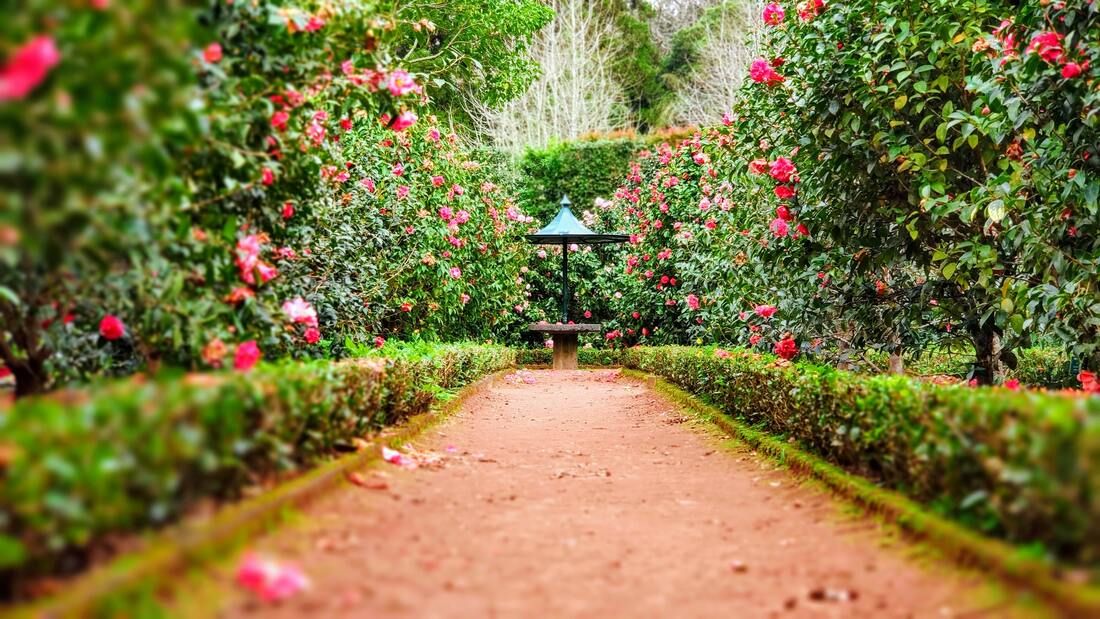
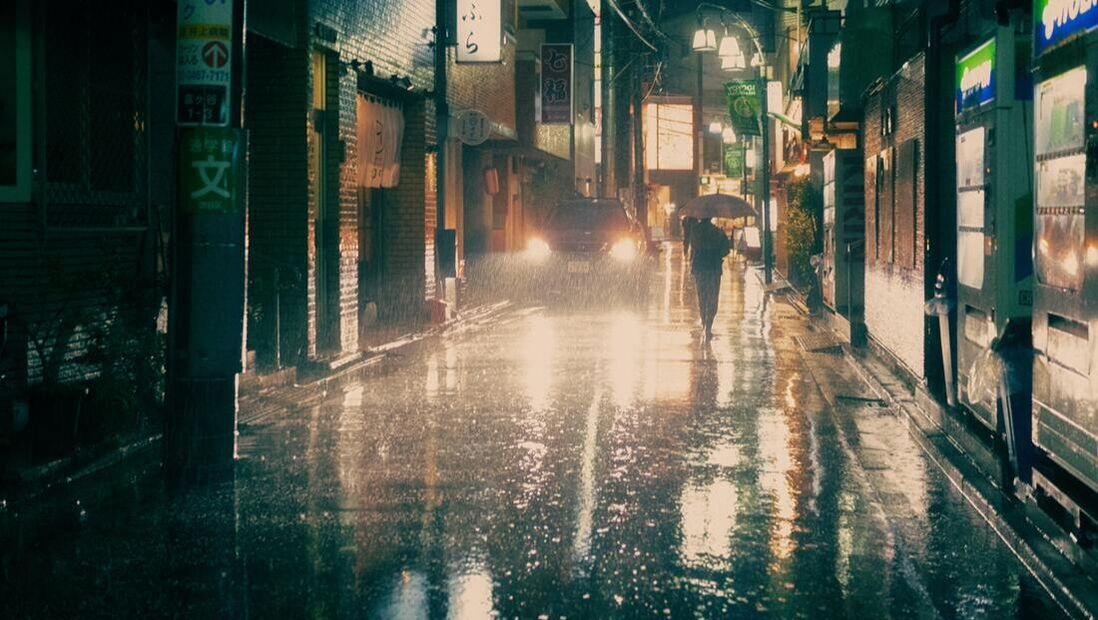
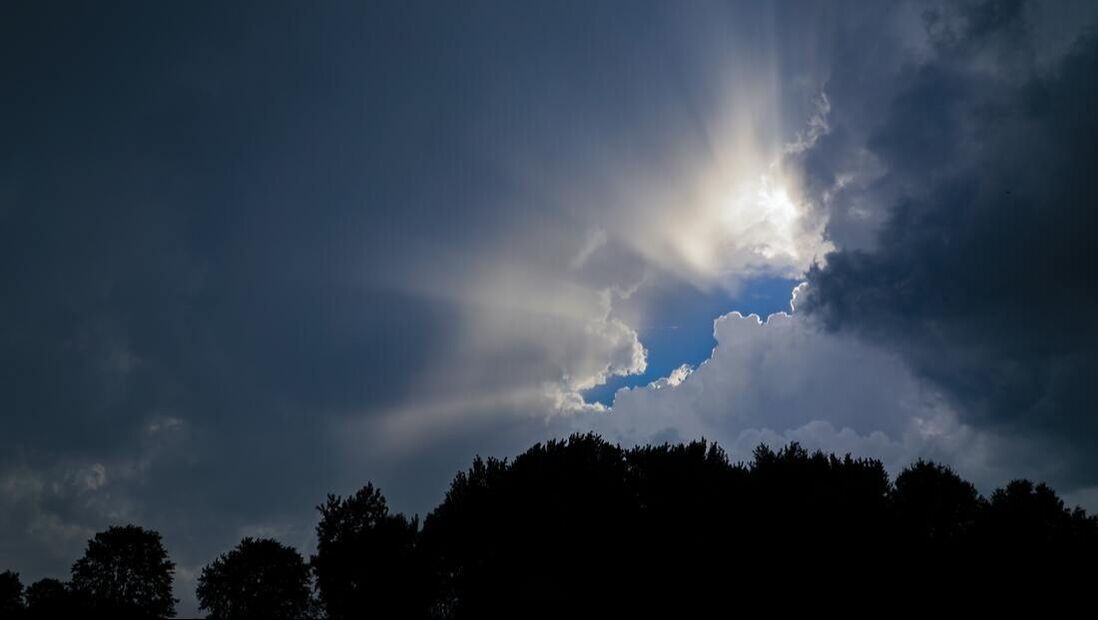
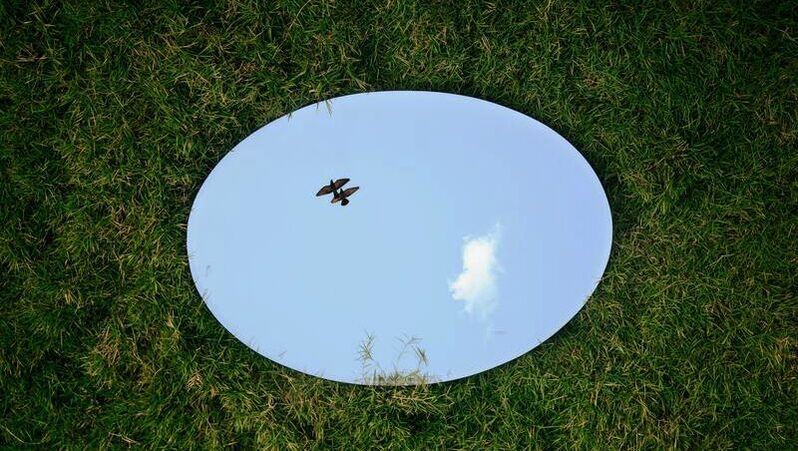
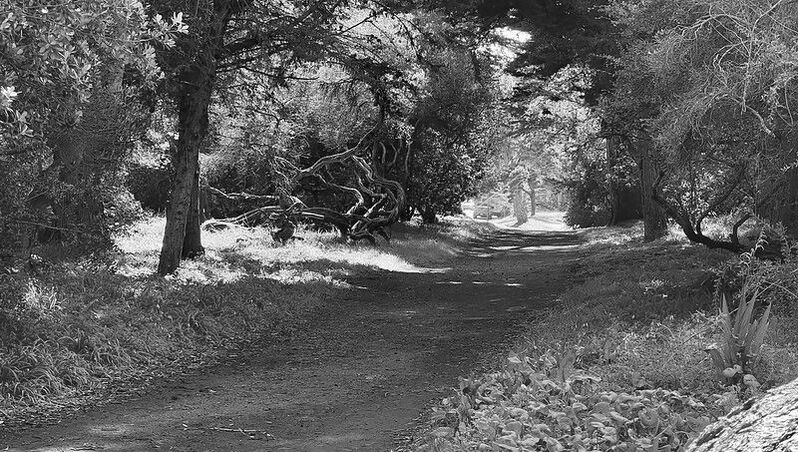
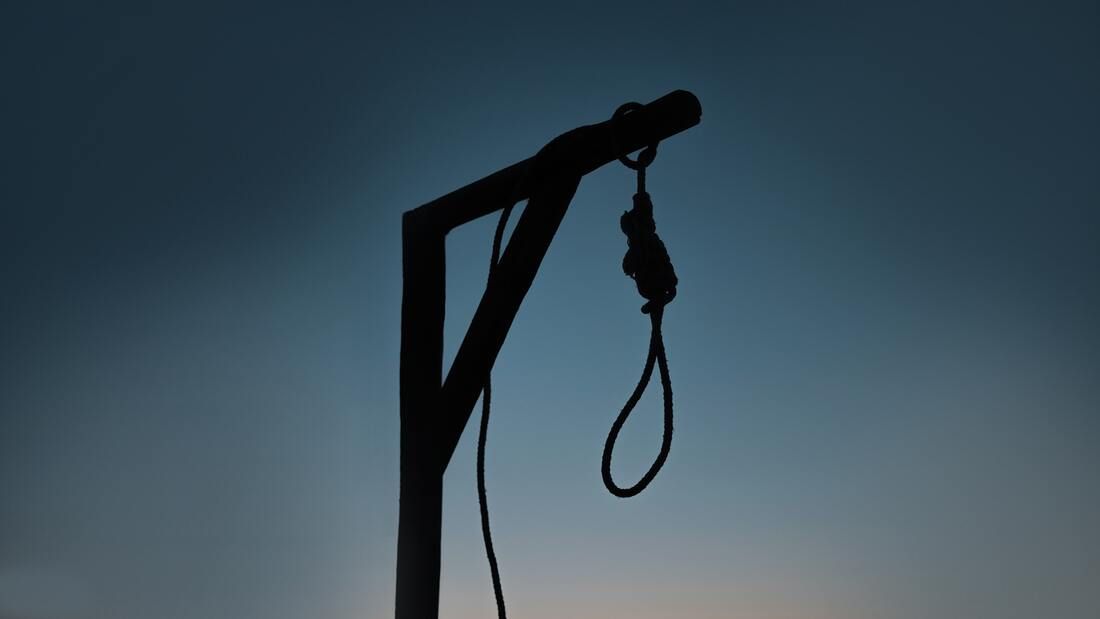

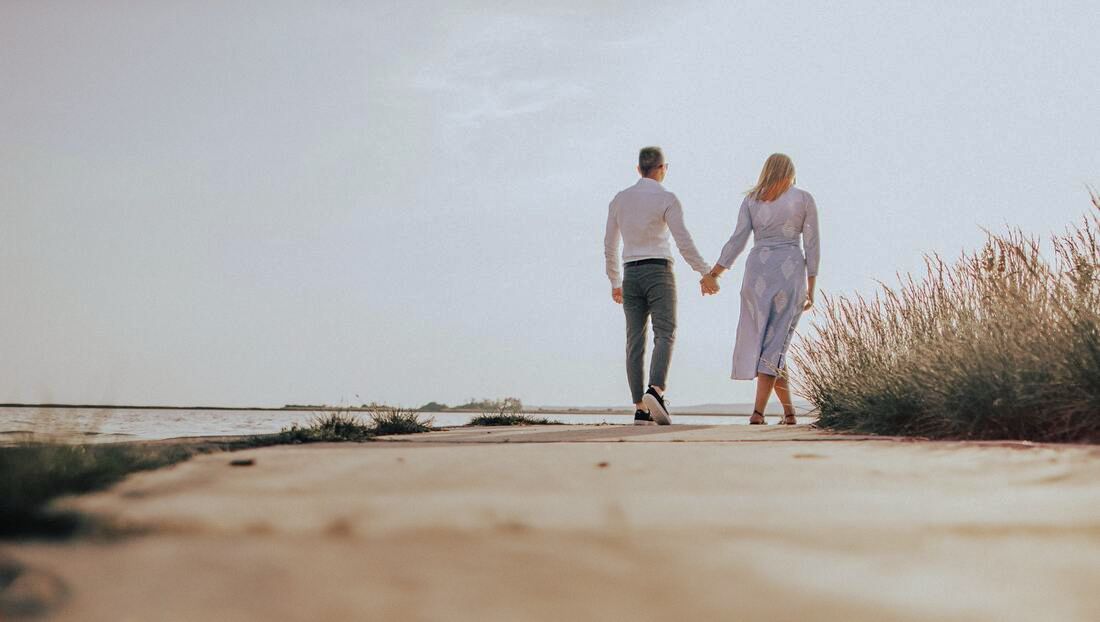
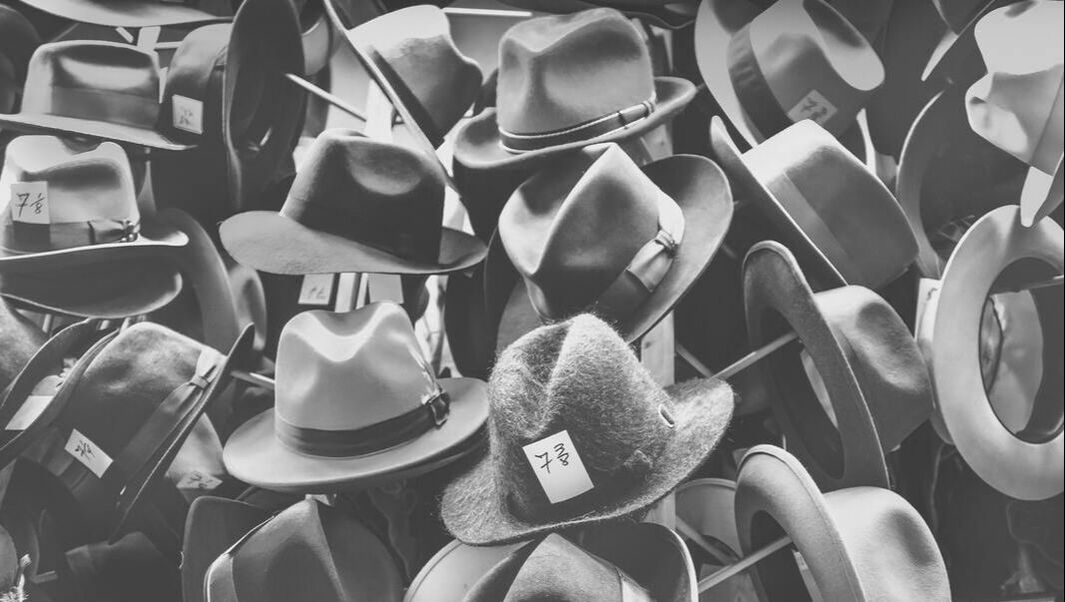
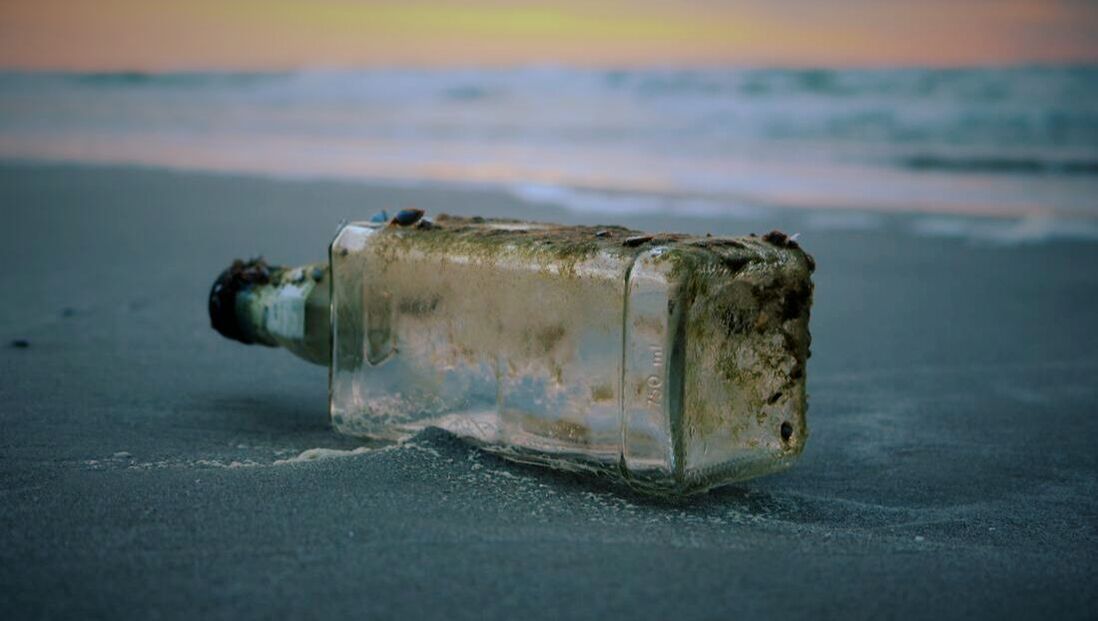

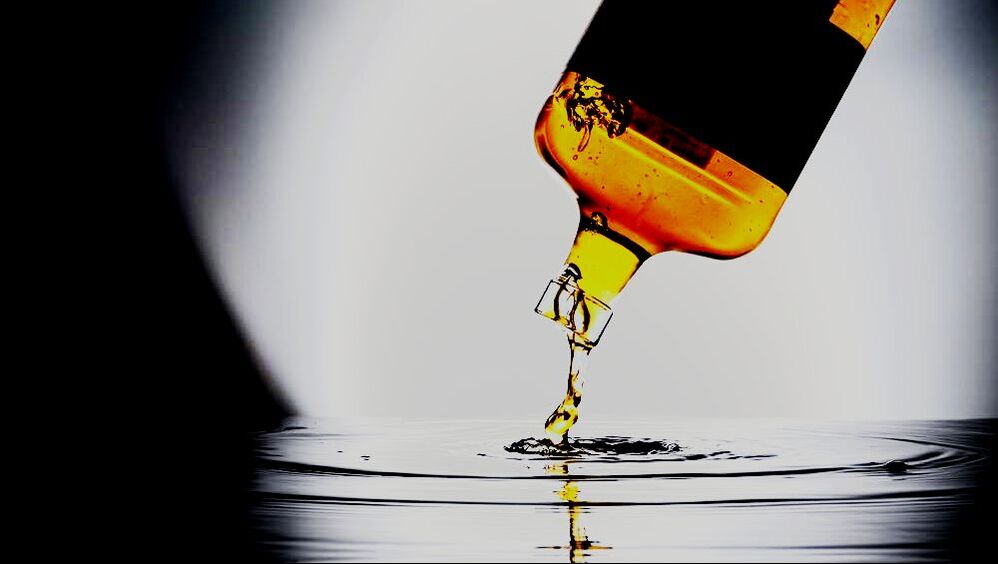

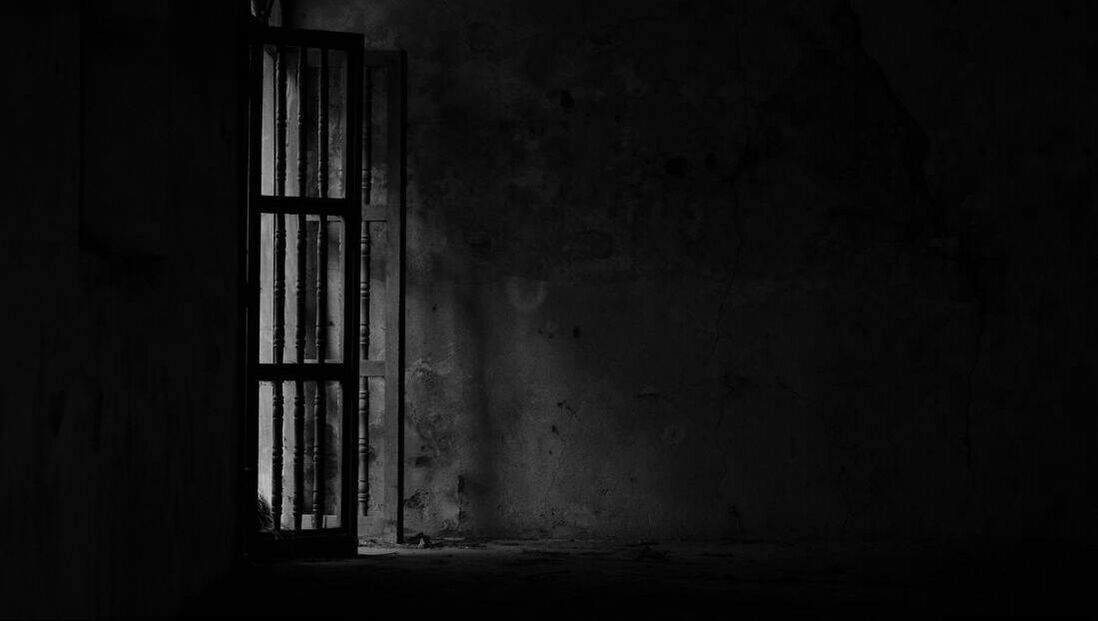
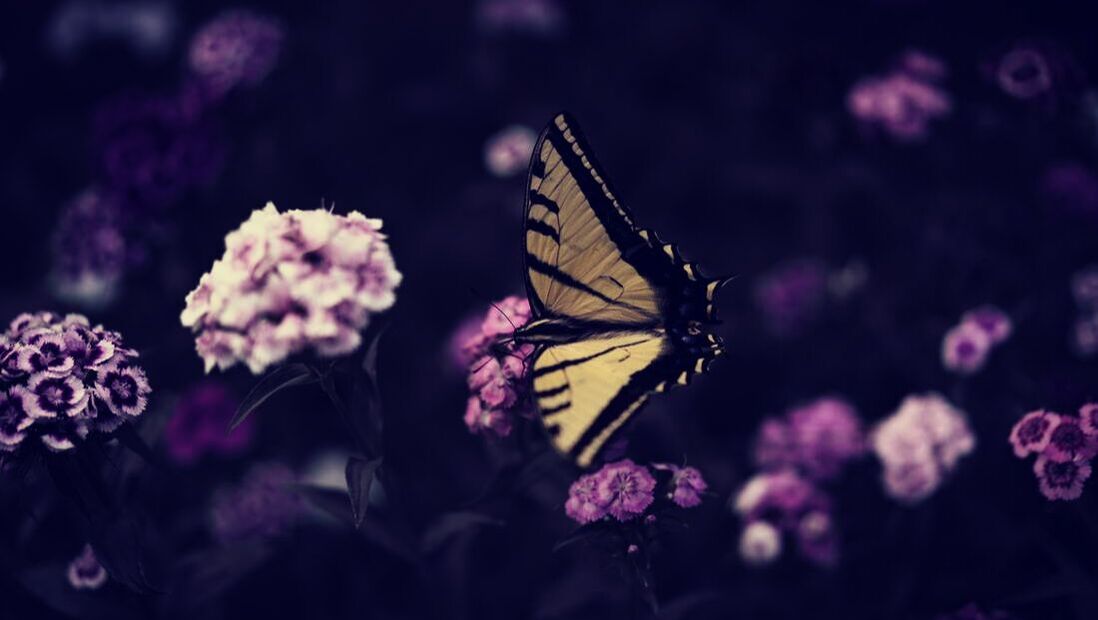
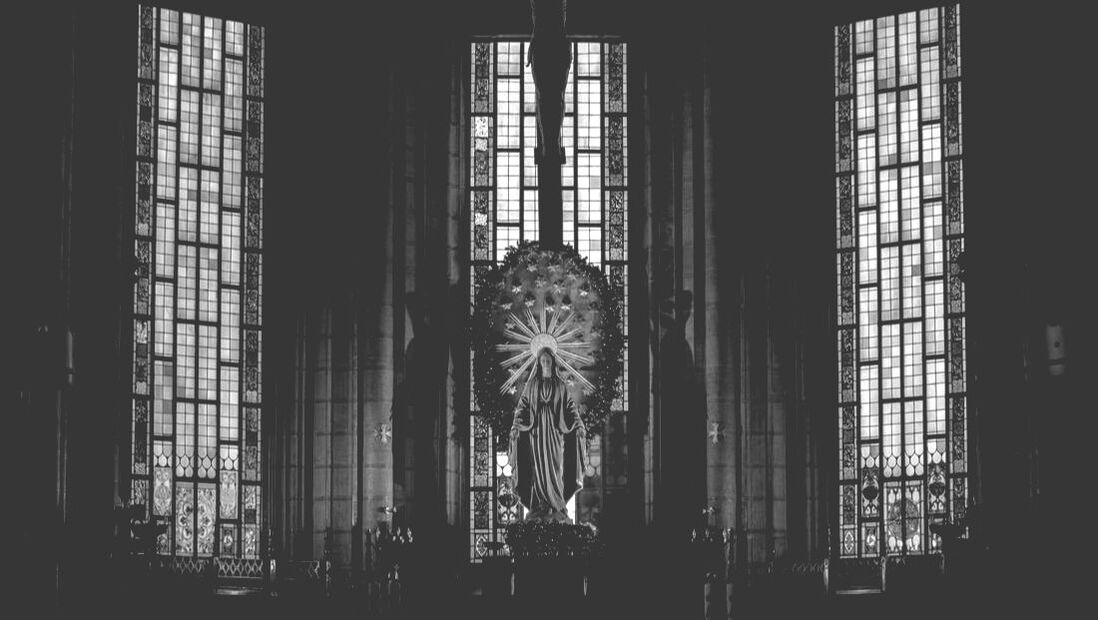

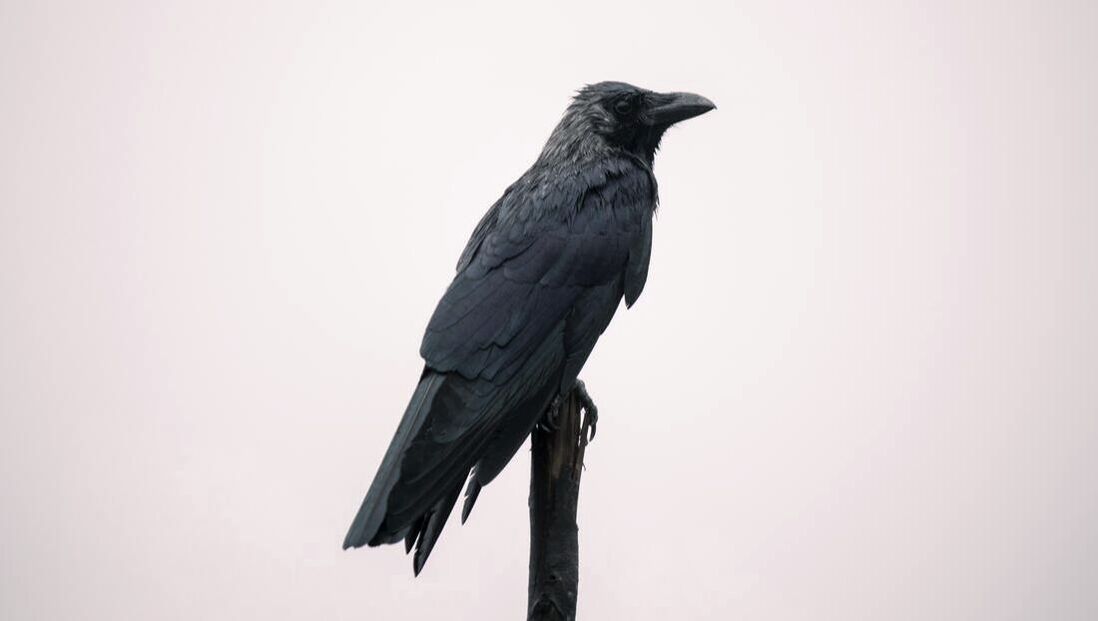


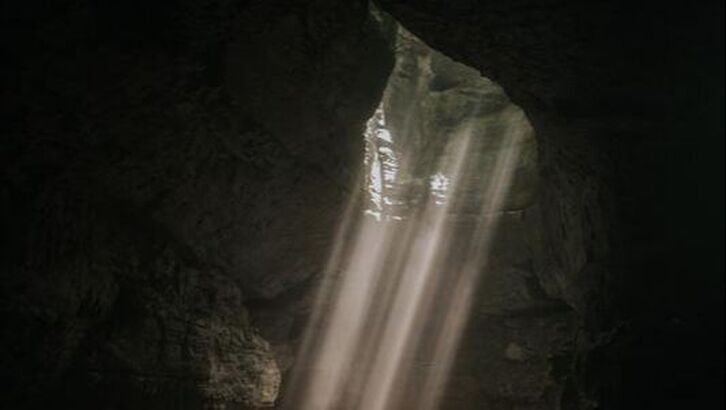
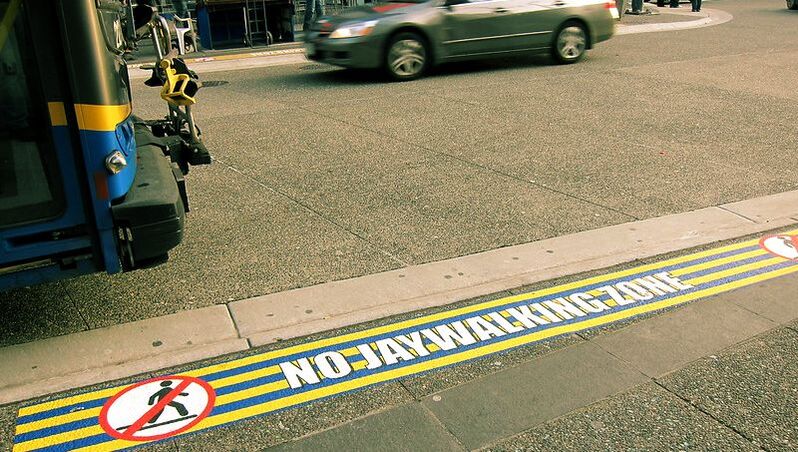
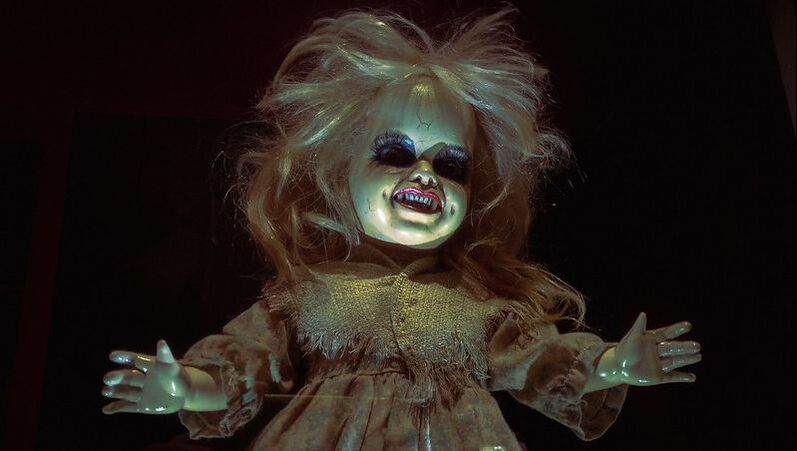
 RSS Feed
RSS Feed